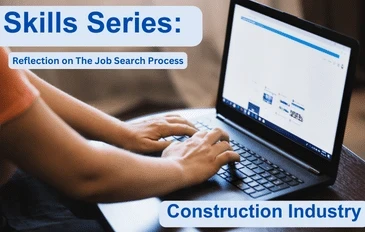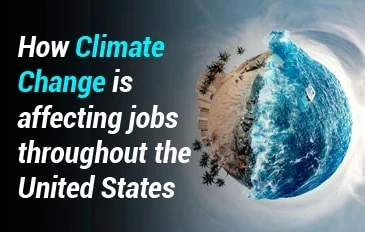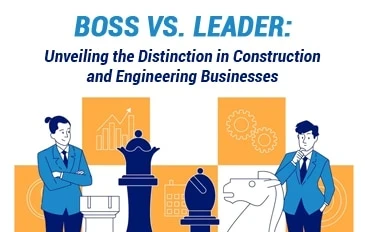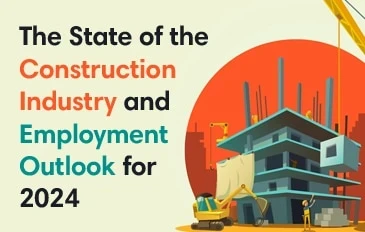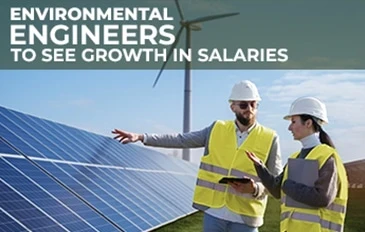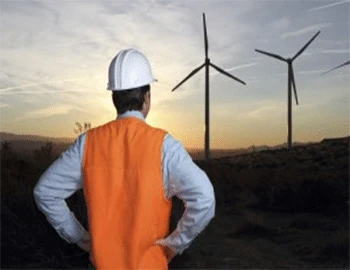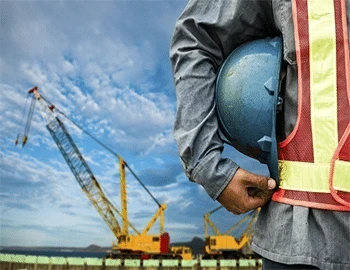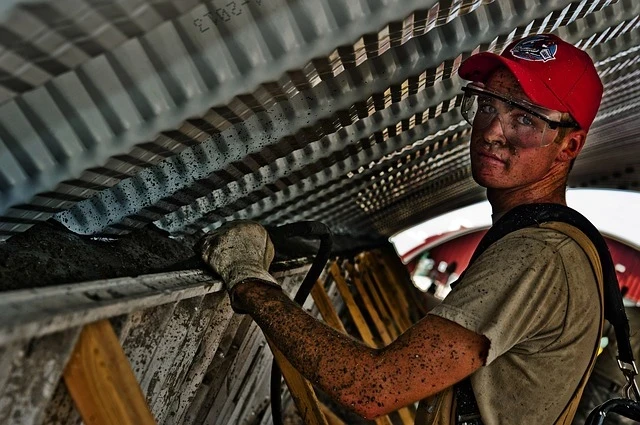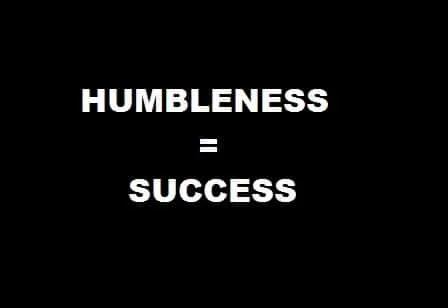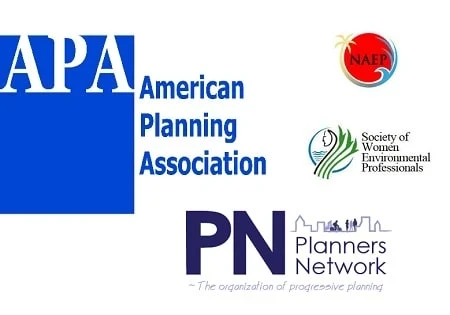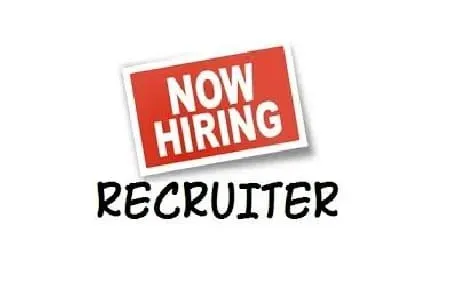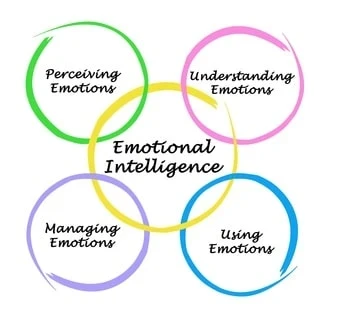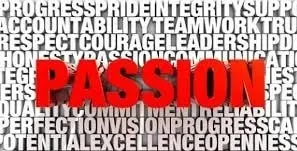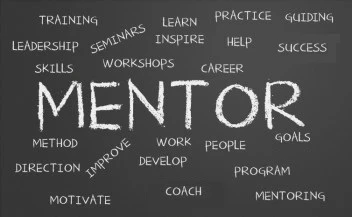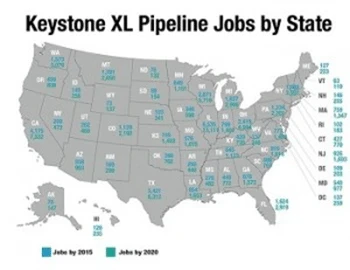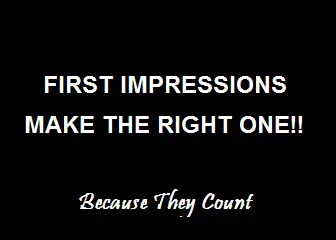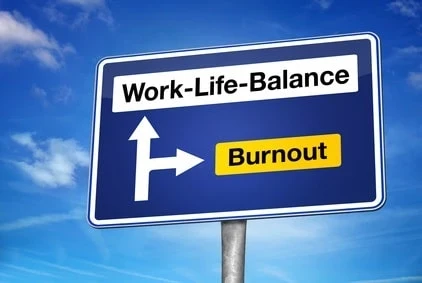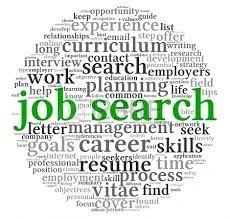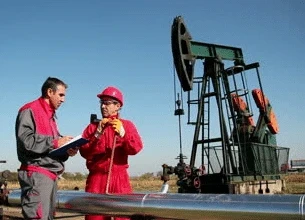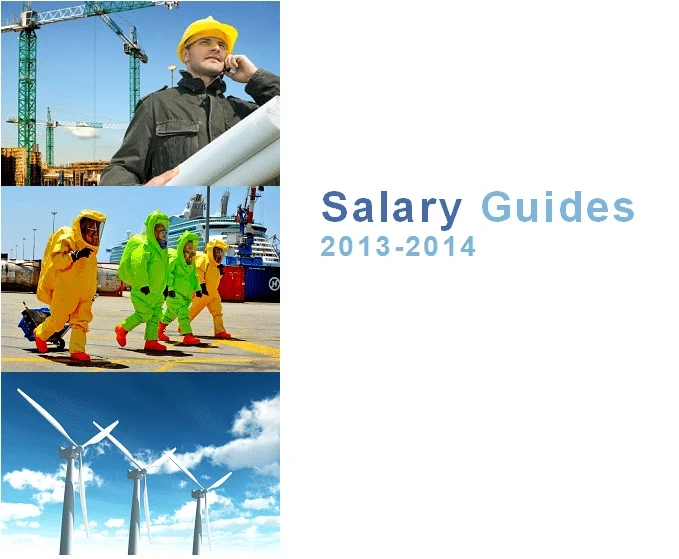Michael DeSafey | Executive Recruiter and HR Professional
The Top-Paying Engineering Jobs: Exploring Lucrative Career Paths
Engineering, the bedrock of innovation and progress, offers a plethora of career opportunities, each with its own unique challenges and rewards. Among the myriad of factors that professionals consider when choosing a career path, salary often looms large. In this article, we embark on a journey to uncover the top paying engineering jobs with the highest salaries, shedding light on the diverse industries and specializations that offer lucrative prospects.
Aerospace Engineering: Soaring High in Salaries
-
-
Aerospace engineering stands out as one of the highest-paying fields within engineering. Professionals in this domain design, develop, and test aircraft, spacecraft, and missiles.
-
Key factors influencing high salaries include the specialized skill set required, stringent safety regulations, and the high stakes associated with aerospace projects.
-
Roles such as Aerospace Engineer, Avionics Engineer, and Astronautical Engineer command impressive salaries, often augmented by bonuses and benefits.
-
Petroleum Engineering: Tapping into Riches
-
-
The extraction of oil and gas resources demands specialized expertise, making petroleum engineering a top contender in the realm of high-paying engineering jobs.
-
With responsibilities ranging from reservoir evaluation to drilling optimization, petroleum engineers play a pivotal role in the energy sector.
-
Despite fluctuations in oil prices, the demand for skilled professionals remains robust, ensuring attractive compensation packages for those in the field.
-
Computer Engineering: Riding the Digital Wave
-
-
In the era of rapid technological advancement, computer engineering emerges as a powerhouse, driving innovation across industries.
-
Computer hardware engineers and software developers enjoy competitive salaries, reflecting the critical role they play in shaping the digital landscape.
-
Factors contributing to high salaries include the scarcity of top talent, evolving job requirements, and the exponential growth of the tech sector.
-
Chemical Engineering: Mixing Science with Prosperity
-
-
Chemical engineers occupy a central position in industries ranging from pharmaceuticals to petrochemicals, leveraging their expertise to optimize processes and develop new materials.
-
The complexity of chemical processes, coupled with the demand for sustainable solutions, ensures that skilled professionals are handsomely rewarded for their contributions.
-
Roles such as Process Engineer and Research Scientist offer lucrative career paths within the realm of chemical engineering, with salaries reflecting the value of innovation and expertise.
-
Electrical Engineering: Powering Up Profits
-
-
From designing electrical systems to developing renewable energy technologies, electrical engineers play a vital role in shaping the modern world.
-
The ever-expanding scope of electrical engineering, encompassing areas such as power generation, telecommunications, and automation, contributes to the high demand for skilled professionals.
-
With advancements in renewable energy and smart grid technologies, electrical engineers are well-positioned to command impressive salaries while driving sustainability efforts.
-
Biomedical Engineering: Innovating for Health and Wealth
-
-
Biomedical engineers merge principles of engineering with the life sciences to develop cutting-edge medical devices, diagnostic tools, and treatments.
-
The convergence of technology and healthcare fuels demand for biomedical engineers, offering lucrative opportunities to make a tangible impact on patient care.
-
While salaries in biomedical engineering may vary based on factors such as experience and industry focus, professionals in this field often enjoy competitive compensation packages.
-
From aerospace to biomedical engineering, each specialization offers a unique blend of challenges and rewards, attracting talented individuals from diverse backgrounds. While salary is undoubtedly a significant factor in career decisions, aspiring engineers should also consider their interests, values, and long-term career goals. Ultimately, by leveraging their skills and passion, engineers can carve out fulfilling and prosperous careers in a world brimming with possibilities.
Webuild Staffing Agency is a leading executive search and staffing agency dedicated to the construction, engineering and environmental industries. To learn more please visit: www.webuildstaffing.com
Engineering Recruiters: A Key Player in the Talent Acquisition Process
In the ever-evolving landscape of engineering, where innovation is the name of the game, the role of an engineering recruiters emerge as paramount. Often operating behind the scenes, these professionals serve as the bridge between skilled engineers and the companies seeking their expertise. But what exactly does an engineering recruiter do, and why are they essential in today’s competitive market?
Understanding the Role of an Engineering Recruiter:
An engineering recruiter, also known as a technical recruiter, specializes in sourcing, screening, and hiring engineering talent for organizations across various industries. Unlike traditional recruiters, who may handle a wide range of job roles, engineering recruiters possess a deep understanding of technical skills, industry trends, and the intricacies of engineering roles.
Their primary objective is to identify, attract, and onboard top engineering talent that aligns with their client’s requirements and culture. This involves a multifaceted approach, including:
-
Talent Identification: Engineering recruiters utilize a diverse range of sourcing channels to identify potential candidates. This may include job boards, professional networking sites like LinkedIn, industry events, referrals, and direct outreach. They leverage their extensive networks and market knowledge to pinpoint individuals with the right skill set and experience.
-
Screening and Assessment: Once candidates are identified, engineering recruiters conduct thorough screenings to evaluate their technical competencies, qualifications, and cultural fit. This may involve technical assessments, phone interviews, and in-person meetings to gauge the candidate’s expertise and communication skills.
-
Relationship Building: Building and maintaining relationships with engineering professionals is crucial for recruiters. Even if a candidate isn’t the right fit for a current role, nurturing these connections can lead to future opportunities. Additionally, maintaining a positive candidate experience, regardless of the outcome, is vital for the recruiter’s reputation and the company’s employer brand.
-
Collaboration with Hiring Managers: Engineering recruiters work closely with hiring managers and other stakeholders to understand the specific requirements of each role. By collaborating effectively, they can tailor their search criteria and screening processes to identify candidates who not only meet the technical requirements but also align with the team dynamics and company culture.
-
Market Insights and Trends: Staying abreast of industry trends, technological advancements, and market demands is essential for engineering recruiters. By understanding the evolving landscape, they can anticipate skill shortages, adapt their recruitment strategies, and advise clients on market conditions and salary expectations.
Challenges Faced by Engineering Recruiters:
While the role of an engineering recruiter is crucial, it comes with its own set of challenges:
-
Talent Shortages: In highly specialized engineering fields such as artificial intelligence, cybersecurity, and renewable energy, finding qualified candidates can be challenging. Engineering recruiters must proactively seek out talent and employ creative strategies to attract candidates in competitive markets.
-
Technical Expertise: Unlike generalist recruiters, engineering recruiters need a solid understanding of technical concepts and terminology to effectively evaluate candidates’ skills. Continuous learning and collaboration with industry professionals are essential to stay updated on emerging technologies and trends.
-
Candidate Expectations: Top engineering talent is often in high demand and may have specific expectations regarding compensation, benefits, and career advancement opportunities. Engineering recruiters must effectively communicate these factors and negotiate offers that meet both the candidate’s and the client’s needs.
-
Evolving Recruitment Tools: The recruitment landscape is constantly evolving, with new technologies and tools emerging regularly. Engineering recruiters must adapt to these changes, leveraging applicant tracking systems, AI-driven sourcing tools, and data analytics to streamline their processes and identify top talent efficiently.
The Impact of Engineering Recruiters:
Despite these challenges, engineering recruiters play a pivotal role in shaping the future of organizations by:
-
Driving Innovation: By connecting companies with top engineering talent, recruiters facilitate the innovation process. Whether it’s developing cutting-edge technologies, optimizing processes, or solving complex problems, skilled engineers are instrumental in driving progress and maintaining a competitive edge.
-
Fostering Diversity and Inclusion: Engineering recruiters have the opportunity to promote diversity and inclusion within organizations by actively sourcing candidates from underrepresented groups. By fostering a diverse workforce, companies can benefit from a range of perspectives, creativity, and problem-solving approaches.
-
Building High-Performing Teams: Recruiting the right engineers isn’t just about technical skills; it’s also about finding individuals who can collaborate effectively, communicate clearly, and thrive in a team environment. Engineering recruiters play a key role in assembling high-performing teams that can tackle challenges and deliver results.
-
Contributing to Business Growth: Ultimately, the success of any organization hinges on its ability to attract and retain top talent. Engineering recruiters directly contribute to business growth by ensuring that companies have the skilled workforce needed to drive innovation, meet project deadlines, and achieve strategic objectives.
In the dynamic world of engineering, the role of an engineering recruiter is indispensable. These professionals serve as the gatekeepers of talent, connecting skilled engineers with organizations that rely on their expertise to thrive. By leveraging their technical acumen, industry knowledge, and relationship-building skills, engineering recruiters play a vital role in shaping the future of engineering and driving organizational success.
Webuild Staffing Agency is a leading executive search and staffing agency dedicated to the construction, engineering and environmental industries. To learn more please visit: www.webuildstaffing.com
Unleashing Creativity: Construction Careers for Architects, Designers, and Planners
The construction industry is not just about bricks and mortar; it’s a canvas for creativity and innovation. Architects, designers, and planners play a crucial role in shaping the built environment, bringing visions to life, and transforming spaces into vibrant and functional places. These diverse and rewarding careers are available for creative minds in construction.
The Role of Architects, Designers, and Planners:
Architects, designers, and planners are the masterminds behind the built environment, responsible for conceptualizing, designing, and planning buildings, landscapes, and urban spaces. Their work encompasses a wide range of tasks, from creating architectural drawings and models to developing building plans and specifications, and from selecting materials and finishes to coordinating with engineers, contractors, and clients. Architects, designers, and planners play a pivotal role in shaping the aesthetic, functional, and social aspects of the built environment, creating spaces that are not only beautiful and inspiring but also sustainable, efficient, and accessible.
Career Paths in Architecture, Design, and Planning:
The field of architecture, design, and planning offers a multitude of career paths and opportunities for creative professionals to specialize in areas that align with their interests and talents. Some of the key career paths in architecture, design, and planning include:
-
Architects: Architects design buildings and structures, ranging from residential homes and commercial buildings to public landmarks and cultural institutions. They work closely with clients to understand their needs and preferences, develop design concepts and proposals, and oversee the construction process to ensure that buildings are constructed according to their specifications and vision.
-
Interior Designer: Interior designers focus on creating functional and aesthetically pleasing interior spaces, including residential interiors, commercial spaces, and public environments. They select furnishings, finishes, and accessories, create layout plans and design schemes, and collaborate with architects, contractors, and clients to bring interior design concepts to life.
-
Urban Planner: Urban planners design and manage cities, towns, and communities, shaping the physical, social, and economic aspects of urban areas. They develop comprehensive plans and policies for land use, transportation, housing, and infrastructure, and work with government agencies, developers, and community stakeholders to implement urban planning initiatives that promote sustainability, livability, and equity.
Architects, Designers Skills and Education:
Becoming a successful architect, designer, or planner requires a combination of creativity, technical proficiency, and formal education. While specific requirements may vary depending on location and employer, some of the key skills and qualifications for careers in architecture, design, and planning include:
-
Design Skills: Architects, designers, and planners must have a strong sense of design and aesthetics, as well as the ability to translate design concepts into tangible forms and spaces.
-
Technical Proficiency: Architecture, design, and planning professionals must be proficient in architectural drafting, computer-aided design (CAD) software, and other technical tools and technologies used in the design and planning process.
-
Problem-Solving Abilities: Architects, designers, and planners must be able to analyze complex problems, identify creative solutions, and communicate their ideas effectively to clients, colleagues, and stakeholders.
-
Communication and Collaboration: Architecture, design, and planning professionals must be able to communicate effectively and collaborate with diverse teams of architects, engineers, contractors, and clients to ensure that design projects are executed successfully.
Architects Opportunities (Design, and Planning):
The field of architecture, design, and planning offers diverse and rewarding career opportunities for creative professionals to make a meaningful impact on the built environment. From designing iconic buildings and landmarks to revitalizing urban neighborhoods and creating sustainable communities, architects, designers, and planners play a vital role in shaping the future of our cities and landscapes.
-
Sustainable Design: With growing concerns about climate change and environmental sustainability, there is a growing demand for architects, designers, and planners who specialize in sustainable design practices, such as green building design, energy efficiency, and passive design strategies.
-
Digital Design and Visualization: Advances in digital design tools and technologies, such as Building Information Modeling (BIM), virtual reality (VR), and 3D visualization, are transforming the way architects, designers, and planners conceptualize, communicate, and realize design projects.
-
Urban Regeneration and Place-making: Architects, designers, and planners are increasingly involved in urban regeneration and place-making initiatives aimed at revitalizing urban neighborhoods, enhancing public spaces, and promoting community engagement and social inclusion.
Architecture, design, and planning are dynamic and multifaceted fields that offer a wealth of opportunities for creative minds to shape the built environment and make a positive impact on society. Whether you’re passionate about designing innovative buildings, creating inspiring interiors, or planning sustainable communities, a career in architecture, design, or planning allows you to unleash your creativity, express your vision, and leave a lasting legacy for generations to come. By honing your skills, pursuing education and training, and seizing opportunities for professional growth and development, you can embark on a rewarding and fulfilling career in architecture, design, or planning, and help shape the future of construction.
Webuild Staffing Agency is a leading executive search and staffing agency dedicated to the construction, engineering and environmental industries. To learn more please visit: www.webuildstaffing.com
Human Innovation: How it Is Shaping the Environmental Industry
In today’s rapidly evolving world, the intersection of technology and environmentalism has become increasingly crucial. As the pressing need for sustainability and conservation grows, so does the reliance on technological advancements to address environmental challenges. This synergy between technology and environmentalism is not only reshaping traditional environmental jobs but also creating entirely new career opportunities; innovation is driving change in the environmental sector, revolutionizing job roles, and paving the way for a greener future.
Technology’s Role in Environmental Conservation
Technology has long been a catalyst for change, and its impact on environmental conservation is no exception. From renewable energy solutions to advanced monitoring systems, technological innovations are empowering environmental professionals to tackle complex challenges more efficiently and effectively.
-
Renewable Energy: One of the most prominent areas where technology intersects with environmentalism is in renewable energy. Breakthroughs in solar, wind, hydro, and geothermal technologies have transformed the energy landscape, offering cleaner alternatives to fossil fuels. Jobs in renewable energy span a wide range of fields, including engineering, research, installation, and maintenance.
-
Data Analytics and Remote Sensing: The advent of big data analytics and remote sensing technologies has revolutionized environmental monitoring and assessment. Satellite imagery, drones, and sensor networks provide real-time data on environmental parameters, allowing for more informed decision-making in areas such as habitat conservation, pollution control, and disaster response.
-
Green Infrastructure: Urbanization and population growth pose significant challenges to environmental sustainability. Green infrastructure solutions, such as green roofs, permeable pavements, and rain gardens, leverage technology to mitigate the adverse effects of urban development on ecosystems. Professionals in landscape architecture, urban planning, and civil engineering play key roles in implementing these innovative solutions.
Emerging Environmental Career Opportunities
As technology continues to advance, new career opportunities are emerging at the intersection of technology and environmentalism. These roles require a diverse skill set that combines technical expertise with a passion for environmental stewardship.
-
Environmental Data Scientist: Environmental data scientists analyze large datasets to identify trends, patterns, and correlations related to environmental phenomena. They apply machine learning algorithms and statistical techniques to extract valuable insights that inform decision-making in areas such as climate modeling, biodiversity conservation, and natural resource management.
-
Sustainable Infrastructure Specialist: With a growing emphasis on sustainability in infrastructure development, there is a demand for professionals who specialize in designing and implementing eco-friendly infrastructure solutions. Sustainable infrastructure specialists work across various sectors, including transportation, water management, and urban planning, to integrate environmental considerations into infrastructure projects.
-
Climate Resilience Planner: Climate resilience planners develop strategies to help communities adapt to the impacts of climate change, such as sea-level rise, extreme weather events, and shifting precipitation patterns. They collaborate with stakeholders to assess vulnerabilities, identify adaptation measures, and incorporate resilience principles into land use planning and policy development.
-
Circular Economy Consultant: The concept of the circular economy, which aims to minimize waste and maximize resource efficiency, is gaining traction as a sustainable alternative to the traditional linear economic model. Circular economy consultants advise businesses and governments on strategies for transitioning to circular practices, such as product redesign, waste reduction, and resource recovery.
The Role of Environmental Education and Training
As the landscape of environmental jobs evolves, so too must the education and training pathways that prepare individuals for careers in this field. Universities, technical colleges, and professional organizations play a vital role in equipping aspiring environmental professionals with the knowledge and skills needed to succeed in a rapidly changing job market.
-
Interdisciplinary Programs: Many educational institutions now offer interdisciplinary programs that combine environmental science, engineering, and technology. These programs provide students with a holistic understanding of environmental issues and prepare them to tackle complex challenges from multiple perspectives.
-
Hands-On Training: Hands-on training opportunities, such as internships, co-op programs, and field courses, are invaluable for gaining practical experience in the environmental sector. Employers increasingly value candidates who have demonstrated real-world skills and experience in addition to academic credentials.
-
Continuing Education: Lifelong learning is essential for staying current in the dynamic field of environmental technology. Continuing education programs, professional certifications, and workshops enable environmental professionals to expand their knowledge base, acquire new skills, and stay abreast of emerging trends and technologies.
Challenges and Opportunities Ahead
While technology holds great promise for advancing environmental conservation efforts, it also presents challenges and ethical considerations that must be addressed. Issues such as data privacy, digital equity, and unintended consequences of technology deployment require careful deliberation to ensure that technological innovations benefit both people and the planet.
-
Digital Divide: The digital divide, characterized by disparities in access to technology and digital skills, can exacerbate environmental inequalities. Efforts to bridge the digital divide and promote digital literacy are essential for ensuring that all communities can participate in and benefit from environmental technology initiatives.
-
Ethical Use of Data: The collection, analysis, and use of environmental data raise ethical concerns related to privacy, consent, and data ownership. Environmental professionals must adhere to ethical guidelines and standards to safeguard individuals’ rights and minimize the potential for misuse or abuse of data.
-
Unintended Consequences: Technological solutions designed to address environmental challenges may have unintended consequences or trade-offs that need to be carefully evaluated. It is essential to adopt a systems thinking approach and consider the broader socio-economic and environmental impacts of technological interventions.
The intersection of technology and environmentalism is reshaping the landscape of environmental jobs, creating exciting opportunities for professionals to make a positive impact on the planet. From renewable energy and data analytics to sustainable infrastructure and circular economy solutions, innovation is driving change and propelling the environmental sector into the future. By embracing technology, fostering interdisciplinary collaboration, and addressing ethical considerations, we can harness the power of innovation to build a more sustainable and resilient world for future generations.
Webuild Staffing Agency is a leading executive search and staffing agency dedicated to the construction, engineering and environmental industries. To learn more please visit: www.webuildstaffing.com
Navigating Tomorrow’s Landscape: The Future of Construction – Emerging Opportunities and Skills Needed to Advance
The construction industry is undergoing a seismic shift, driven by technological advancements, demographic changes, and evolving market demands. As we stand on the cusp of a new era in construction, it’s essential to anticipate the emerging roles and skills that will shape the future of the industry.
The Changing Face of Construction:
The construction industry is no stranger to change, but the pace and scale of transformation we’re witnessing today are unprecedented. From digitalization and automation to sustainability and resilience, the future of construction will be defined by innovation and adaptation to new challenges and opportunities. As traditional construction methods give way to new technologies and practices, construction professionals must embrace lifelong learning and upskilling to stay relevant in a rapidly evolving industry.
Emerging Roles in Construction:
The future of construction will see the emergence of new roles and job titles as the industry evolves to meet the demands of a changing world. Some of the emerging roles in construction include:
-
Digital Construction Manager: Digital construction managers oversee the implementation of digital technologies, such as Building Information Modeling (BIM), drones, and virtual reality, to optimize project workflows, improve collaboration, and enhance project outcomes.
-
Sustainability Specialist: Sustainability specialists focus on integrating sustainable design principles and practices into construction projects, reducing environmental impact, minimizing waste, and promoting energy efficiency and resource conservation.
-
Resilience Engineer: Resilience engineers design and implement solutions to enhance the resilience of buildings and infrastructure to climate change, natural disasters, and other threats, ensuring that they can withstand and recover from adverse events.
-
Data Analyst: Data analysts collect, analyze, and interpret data from construction projects to identify trends, patterns, and insights that inform decision-making, optimize performance, and drive continuous improvement.
Skills Needed for Tomorrow’s Construction:
As construction evolves, so too must the skills of construction professionals. Tomorrow’s construction workforce will need a diverse set of skills to thrive in an increasingly complex and interconnected industry. Some of the key skills needed for tomorrow’s construction include:
-
Digital Literacy: Construction professionals must be proficient in digital technologies, such as BIM, drones, augmented reality, and data analytics, to leverage the full potential of digitalization in construction projects.
-
Adaptability: The ability to adapt to change and learn new skills quickly will be essential for construction professionals to navigate the evolving landscape of construction and stay ahead of the curve.
-
Collaboration: Construction projects are becoming increasingly interdisciplinary and collaborative, requiring construction professionals to work effectively with diverse teams of architects, engineers, contractors, and other stakeholders.
-
Problem-Solving: Construction professionals must be able to think critically, analyze complex problems, and develop innovative solutions to overcome challenges and seize opportunities in construction projects.
-
Sustainability Awareness: With growing concerns about climate change and environmental sustainability, construction professionals must have a deep understanding of sustainable design principles and practices to create buildings and infrastructure that minimize environmental impact and promote resilience.
Embracing Innovation and Change:
The future of construction holds immense promise for those who are willing to embrace innovation and change. Construction professionals must be proactive in seeking out opportunities to upskill and reskill, whether through formal education, training programs, or on-the-job learning experiences. By staying abreast of emerging trends and technologies and continuously investing in their professional development, construction professionals can position themselves for success in tomorrow’s construction projects.
The future of construction is bright and full of potential, but it will require construction professionals to adapt and evolve to meet the challenges and opportunities that lie ahead. By embracing emerging roles and skills, construction professionals can play a pivotal role in shaping the future of the industry, driving innovation, sustainability, and resilience in construction projects around the world. As we navigate the complexities of tomorrow’s construction landscape, let us seize the opportunities before us and embark on a journey of discovery and transformation in the pursuit of a better, brighter future for construction.
Webuild Staffing Agency is a leading executive search and staffing agency dedicated to the construction, engineering and environmental industries. To learn more please visit: www.webuildstaffing.com
Powering Progress: The Vital Role of Electricians in Construction
In the vast ecosystem of construction, electricians stand as indispensable pillars, providing the vital power infrastructure necessary for modern living. From wiring buildings to installing electrical systems, an electricans expertise ensures the safe and efficient operation of homes, offices, and industrial facilities. Today, we’ll shine a spotlight on the crucial role of electricians in construction, exploring their responsibilities, skills, career paths, and the evolving landscape of electrical work in the industry.
Understanding the Role of Electricians:
Electricians are skilled professionals responsible for installing, maintaining, and repairing electrical systems and components in buildings and infrastructure projects. Their work encompasses a wide range of tasks, including installing wiring, outlets, switches, and lighting fixtures; connecting electrical equipment and appliances; and troubleshooting electrical faults and malfunctions. Electricians play a critical role in ensuring that buildings have safe and reliable electrical power, complying with building codes and regulations to protect occupants and property from electrical hazards.
Electricians Career Path in Construction:
The field of electrical construction offers diverse electrician career paths and opportunities for electricians to specialize in specific areas of expertise. Some of the key career paths in electrical construction include:
-
Residential Electricians: Residential electricians specialize in wiring and electrical systems for homes, apartments, and other residential properties. They install lighting, outlets, circuit breakers, and other electrical components, ensuring that electrical systems meet the needs and specifications of homeowners and comply with local building codes and safety standards.
-
Commercial Electricians: Commercial electricians work on electrical systems for commercial buildings, such as offices, retail stores, and restaurants. They install and maintain lighting, power distribution systems, HVAC controls, and other electrical equipment, often working on larger-scale projects with complex requirements and specifications.
-
Industrial Electricians: Industrial electricians focus on electrical systems for industrial facilities, such as factories, warehouses, and manufacturing plants. They install and maintain machinery, control systems, and power distribution networks, ensuring the safe and efficient operation of industrial equipment and processes.
-
Maintenance Electricians: Maintenance electricians are responsible for inspecting, troubleshooting, and repairing electrical systems and equipment in buildings and facilities. They perform preventive maintenance tasks, identify and resolve electrical problems, and ensure that electrical systems are operating safely and efficiently.
Electricians Skills and Qualifications:
Becoming a successful electrician requires a combination of technical skills, practical experience, and formal education. While specific requirements may vary depending on location and employer, some of the key skills and qualifications for electricians include:
-
Technical Knowledge: Electricians must have a solid understanding of electrical theory, principles, and codes, as well as knowledge of electrical systems, components, and equipment.
-
Practical Skills: Electricians need to be skilled in using hand and power tools, reading blueprints and technical drawings, and performing precise and accurate electrical work.
-
Problem-Solving Abilities: Electricians must be able to troubleshoot electrical problems, diagnose faults, and develop effective solutions to ensure the safe and reliable operation of electrical systems.
-
Attention to Detail: Electricians must pay close attention to detail to ensure that electrical work is performed accurately, safely, and in compliance with relevant regulations and standards.
-
Communication Skills: Electricians need to communicate effectively with clients, colleagues, and other stakeholders, explaining technical concepts and requirements clearly and professionally.
Evolving Trends in Electrical Construction:
The field of electrical construction is constantly evolving, driven by advancements in technology, changes in building codes and regulations, and shifts in industry practices. Some of the emerging trends shaping the future of electrical construction include:
-
Renewable Energy Integration: The growing demand for renewable energy sources, such as solar and wind power, is driving the integration of renewable energy systems into buildings and infrastructure projects. Electricians play a key role in installing and connecting solar panels, wind turbines, and other renewable energy systems to the electrical grid.
-
Smart Building Technologies: The rise of smart building technologies, such as smart lighting, HVAC controls, and building automation systems, is transforming the way buildings are designed, constructed, and operated. Electricians are increasingly involved in installing and configuring smart building systems, ensuring seamless integration and optimal performance.
-
Energy Efficiency Upgrades: With a growing emphasis on energy efficiency and sustainability, there is a rising demand for energy efficiency upgrades in buildings and facilities. Electricians play a crucial role in retrofitting existing buildings with energy-efficient lighting, appliances, and controls, helping reduce energy consumption and lower utility costs.
-
Electrification of Transportation: The shift towards electrification of transportation, including electric vehicles (EVs) and charging infrastructure, is creating new opportunities for electricians. Electricians are involved in installing EV charging stations, upgrading electrical systems to support EV charging, and ensuring the safe and reliable operation of EV infrastructure.
Electricians are essential contributors to the construction industry, providing the electrical infrastructure that powers our modern world. From residential homes to commercial buildings and industrial facilities, their expertise ensures that electrical systems are installed safely, efficiently, and in compliance with regulatory standards. As the construction industry continues to evolve and embrace new technologies, electricians will play a critical role in shaping the future of electrical construction, driving innovation and progress in this dynamic and essential field.
Webuild Staffing Agency is a leading executive search and staffing agency dedicated to the construction, engineering and environmental industries. To learn more please visit: www.webuildstaffing.com
Navigating Complexity: The Vital Role of Environmental Consultants in Solving Today’s Challenges
In an era marked by unprecedented environmental challenges, the role of environmental consultants has become increasingly vital. These professionals serve as stewards of our planet, leveraging their expertise to address complex issues ranging from pollution remediation to sustainable development. Lets delve into the multifaceted role of environmental consultants, exploring how they navigate intricate challenges to foster a healthier and more sustainable world.
Understanding Environmental Consulting: Environmental consulting is a dynamic field encompassing a diverse range of disciplines, including environmental science, engineering, policy, and law. Consultants work with various stakeholders, including government agencies, corporations, non-profit organizations, and communities, to assess, mitigate, and manage environmental risks.
Environmental Consultants Address the Complexities of Environmental Compliance:
Today’s environmental challenges are more complex and interconnected than ever before. From climate change and biodiversity loss to pollution and resource depletion, these issues require holistic and innovative solutions. Environmental consultants play a crucial role in deciphering this complexity and developing strategies to address it effectively.
-
Environmental Impact Assessment (EIA): One of the primary responsibilities of environmental consultants is conducting Environmental Impact Assessments (EIAs). EIAs evaluate the potential environmental consequences of proposed projects, such as infrastructure development, industrial facilities, or urban expansion. By identifying potential risks and recommending mitigation measures, consultants help decision-makers make informed choices that balance development with environmental protection.
-
Pollution Remediation and Management: Contamination of soil, water, and air poses significant threats to human health and ecosystems. Environmental consultants specialize in assessing and remediating polluted sites, whether caused by industrial accidents, improper waste disposal, or historical contamination. Through techniques such as site investigation, risk assessment, and remediation planning, consultants strive to restore environmental quality and safeguard public health.
-
Sustainable Development and Resource Management: Achieving sustainable development requires balancing economic growth with environmental conservation and social equity. Environmental consultants collaborate with businesses, governments, and communities to integrate sustainability principles into development projects and resource management practices. From renewable energy initiatives to green infrastructure planning, consultants advocate for solutions that minimize environmental impact while maximizing social and economic benefits.
-
Regulatory Compliance and Policy Advocacy: Navigating the complex landscape of environmental regulations and policies is a daunting task for many organizations. Environmental consultants provide invaluable support by ensuring compliance with local, national, and international environmental laws. Additionally, they advocate for policy changes and initiatives that promote environmental stewardship and address emerging challenges such as climate change adaptation and biodiversity conservation.
-
Stakeholder Engagement and Conflict Resolution: Environmental projects often involve multiple stakeholders with diverse interests and perspectives. Consultants excel in facilitating dialogue and collaboration among stakeholders to build consensus and resolve conflicts. By fostering meaningful engagement and incorporating stakeholders’ input into decision-making processes, consultants help create sustainable solutions that garner broader support and acceptance.
The Role of Technology and Innovation: Innovation and technology play a crucial role in enhancing the effectiveness and efficiency of environmental consulting practices. Advanced tools such as Geographic Information Systems (GIS), remote sensing, and predictive modeling enable consultants to collect, analyze, and visualize complex environmental data. Furthermore, emerging technologies such as artificial intelligence and blockchain offer new opportunities for improving environmental monitoring, compliance management, and sustainability reporting.
Challenges and Opportunities: Despite the significant contributions of environmental consultants, the field faces several challenges, including resource constraints, regulatory uncertainties, and evolving environmental risks. Moreover, the urgent need to address pressing issues such as climate change requires continuous adaptation and innovation within the consulting industry. However, these challenges also present opportunities for consultants to leverage their expertise and creativity to develop innovative solutions and drive positive change.
In conclusion, environmental consultants play a critical role in addressing today’s complex environmental challenges. Through their interdisciplinary expertise, practical experience, and commitment to sustainability, consultants contribute to building a more resilient and equitable world. As we strive to navigate the uncertainties of the future, the role of environmental consultants will remain indispensable in shaping a sustainable path forward for generations to come.
Webuild Staffing Agency is a leading executive search and staffing agency dedicated to the construction, engineering and environmental industries. To learn more please visit: www.webuildstaffing.com
Building Bridges: Careers in Civil Engineering and Infrastructure Construction
Civil engineering and infrastructure construction are integral components of modern society, shaping the built environment and facilitating economic development. From bridges and highways to water treatment plants and airports, civil engineers play a critical role in designing, constructing, and maintaining the infrastructure that supports our communities. Lets explore the diverse and rewarding careers available in civil engineering and infrastructure construction, highlighting the education, skills, and opportunities that these fields offer to aspiring professionals.
-
The Role of Civil Engineers:
Civil engineers are responsible for designing, planning, and overseeing the construction of infrastructure projects that meet the needs of society while ensuring safety, sustainability, and efficiency. Civil engineering encompasses a broad range of disciplines, including structural engineering, transportation engineering, geotechnical engineering, and environmental engineering. Civil engineers work on projects such as roads, bridges, tunnels, dams, airports, and water supply systems, applying their technical expertise and problem-solving skills to address complex engineering challenges.
-
Career Paths in Civil Engineering:
Civil engineering offers a wide array of career paths and specialties, allowing professionals to specialize in areas that align with their interests and strengths. Some of the key career paths in civil engineering include:
-
Structural Engineer: Structural engineers design and analyze the structural systems of buildings, bridges, and other infrastructure projects to ensure they can withstand the forces of nature and meet safety standards.
-
Transportation Engineer: Transportation engineers focus on planning, designing, and managing transportation systems, including roads, highways, railways, and airports, to optimize traffic flow and improve safety and efficiency.
-
Geotechnical Engineer: Geotechnical engineers study the behavior of soil and rock formations to assess their suitability for construction projects and mitigate risks such as landslides, foundation failures, and soil erosion.
-
Environmental Engineer: Environmental engineers work to protect and preserve the natural environment by designing and implementing solutions for pollution control, water and wastewater treatment, and sustainable resource management.
-
Education and Skills:
A career in civil engineering typically requires a bachelor’s degree in civil engineering or a related field from an accredited university. Advanced degrees, such as a master’s or doctoral degree, may be required for certain specialized roles or research positions. In addition to formal education, civil engineers must possess a range of technical, analytical, and interpersonal skills, including:
-
Technical Proficiency: Civil engineers must have a solid understanding of engineering principles, mathematics, and scientific principles, as well as proficiency in engineering software and design tools.
-
Problem-Solving Skills: Civil engineers must be able to analyze complex problems, identify potential solutions, and evaluate their feasibility and effectiveness.
-
Communication and Collaboration: Civil engineers work closely with other professionals, including architects, contractors, and government officials, and must be able to communicate effectively and collaborate with diverse stakeholders.
-
Project Management: Civil engineers must possess strong project management skills, including the ability to develop project plans, manage budgets and schedules, and oversee the work of multidisciplinary teams.
-
Opportunities in Infrastructure Construction:
Infrastructure construction offers a wide range of career opportunities for civil engineers and construction professionals. Infrastructure projects are essential for maintaining and improving the built environment, enhancing quality of life, and stimulating economic growth. Some of the key areas of infrastructure construction include:
-
Transportation Infrastructure: Transportation infrastructure projects include roads, bridges, railways, airports, and transit systems, which are critical for facilitating the movement of people and goods and supporting economic activity.
-
Water and Wastewater Infrastructure: Water and wastewater infrastructure projects include water treatment plants, sewage treatment facilities, and pipelines, which are essential for providing clean drinking water and protecting public health.
-
Energy Infrastructure: Energy infrastructure projects include power plants, transmission lines, and renewable energy facilities, which are vital for meeting the energy needs of society and transitioning to a more sustainable energy future.
-
Public Works Infrastructure: Public works infrastructure projects include parks, schools, government buildings, and community facilities, which contribute to the well-being and livability of communities.
-
Emerging Trends and Technologies in Civil Engineering:
The field of civil engineering and infrastructure construction is constantly evolving, driven by advancements in technology, changes in demographics, and shifts in societal priorities. Some of the emerging trends and technologies shaping the future of civil engineering and infrastructure construction include:
-
Sustainable Design and Construction: Sustainable design principles, such as green building practices, energy efficiency, and renewable energy integration, are increasingly being incorporated into civil engineering and infrastructure construction projects to minimize environmental impact and enhance resilience.
-
Digital Twin Technology: Digital twin technology allows civil engineers to create virtual replicas of physical assets, such as buildings, bridges, and infrastructure systems, to monitor performance, optimize operations, and facilitate predictive maintenance.
-
Building Information Modeling (BIM): Building Information Modeling (BIM) software enables civil engineers to create detailed 3D models of construction projects, improving collaboration, coordination, and decision-making throughout the project lifecycle.
-
Autonomous Construction Equipment: Autonomous construction equipment, such as drones, robotic vehicles, and 3D printers, are revolutionizing construction processes, increasing productivity, and improving safety on job sites.
Civil engineering and infrastructure construction offer diverse and rewarding career opportunities for individuals interested in shaping the built environment and making a positive impact on society. Whether you’re passionate about designing innovative structures, improving transportation systems, or enhancing environmental sustainability, a career in civil engineering and infrastructure construction allows you to apply your skills and expertise to tackle some of the world’s most pressing challenges. By pursuing education, gaining experience, and staying abreast of emerging trends and technologies, aspiring civil engineers and construction professionals can build successful and fulfilling careers in this dynamic and vital field.
Webuild Staffing Agency is a leading executive search and staffing agency dedicated to the construction, engineering and environmental industries. To learn more please visit: www.webuildstaffing.com
Urban Sustainability Careers: Paving the Way for Greener Cities
In the rapidly urbanizing world, the need for sustainable development has become more pressing than ever. With cities consuming a majority of the world’s resources and contributing significantly to environmental degradation, there’s a growing urgency to adopt sustainable practices. Urban sustainability careers have emerged as crucial players in this paradigm shift towards greener cities. Today, we delve into the significance of urban sustainability careers, the diverse opportunities they offer, and the pivotal role they play in creating a more sustainable urban future.
Understanding Urban Sustainability: Before delving into the realm of urban sustainability careers, it’s essential to grasp the concept of urban sustainability itself. Urban sustainability revolves around creating cities that meet the needs of the present without compromising the ability of future generations to meet their own needs. This entails balancing environmental preservation, economic viability, and social equity within urban spaces.
The Challenges of Urbanization: The rapid pace of urbanization has brought forth a myriad of challenges, including pollution, resource depletion, inadequate infrastructure, and social disparities. These challenges pose significant threats to both the environment and human well-being, necessitating innovative solutions and sustainable practices.
The Role of Urban Sustainability Careers: Urban sustainability careers encompass a wide range of professions dedicated to addressing the complex challenges of urbanization through sustainable initiatives. These careers are instrumental in driving positive change by implementing strategies that promote environmental conservation, enhance resource efficiency, and foster social inclusivity within urban environments.
Exploring Urban Sustainability Careers Path:
-
Urban Planning and Design:
-
Urban planners and designers play a pivotal role in shaping the physical and social fabric of cities. By incorporating sustainable design principles, such as mixed land use, green spaces, and pedestrian-friendly infrastructure, they contribute to creating more livable and environmentally friendly urban environments.
-
-
Sustainable Transportation:
-
Professionals in sustainable transportation focus on developing and implementing transportation systems that minimize carbon emissions, reduce congestion, and promote alternative modes of transit such as walking, cycling, and public transportation.
-
-
Energy Management and Renewable Technologies:
-
With the increasing demand for energy in urban areas, there’s a growing need for professionals skilled in energy management and renewable technologies. From implementing energy-efficient building designs to deploying solar and wind energy solutions, these professionals are instrumental in reducing carbon footprints and promoting renewable energy adoption.
-
-
Environmental Policy and Advocacy:
-
Environmental policy analysts, advocates, and lobbyists work towards shaping policies and regulations that support sustainable urban development. By advocating for environmentally conscious policies and promoting stakeholder engagement, they influence decision-making processes at local, regional, and national levels.
-
-
Sustainable Business and Corporate Social Responsibility (CSR):
-
Professionals in sustainable business and CSR focus on integrating environmental and social considerations into corporate strategies and operations. From implementing sustainable supply chain practices to developing green marketing initiatives, they contribute to fostering responsible business practices and driving sustainable economic growth.
-
-
Environmental Education and Outreach:
-
Educators and outreach specialists play a crucial role in raising awareness about environmental issues and promoting sustainable behaviors within urban communities. Through educational programs, workshops, and community engagement initiatives, they empower individuals to make informed choices and take collective action towards sustainability.
-
The Impact of Urban Sustainability Careers: Urban sustainability careers have far-reaching impacts on both the environment and society. By championing sustainable practices and innovative solutions, professionals in this field contribute to:
-
Mitigating Climate Change: Through initiatives such as renewable energy adoption, energy efficiency measures, and carbon emission reductions, urban sustainability careers play a vital role in combating climate change and mitigating its adverse effects on cities.
-
Enhancing Quality of Life: Sustainable urban development improves air and water quality, enhances access to green spaces, promotes active lifestyles, and fosters community cohesion, thereby enhancing the overall quality of life for urban residents.
-
Promoting Economic Growth: By fostering innovation, creating green jobs, and attracting investment in sustainable infrastructure, urban sustainability careers contribute to stimulating economic growth and fostering resilience in urban economies.
-
Fostering Social Equity: Sustainable development prioritizes the needs of marginalized communities and promotes social inclusivity within urban spaces, thereby reducing disparities and promoting social equity.
-
Preserving Biodiversity: Urban sustainability careers play a crucial role in conserving biodiversity and protecting natural habitats within urban areas, thereby promoting ecological resilience and supporting biodiversity conservation efforts.
As cities continue to grow and evolve, the importance of urban sustainability careers cannot be overstated. From urban planners and environmental policy analysts to sustainable business professionals and educators, individuals in this field are at the forefront of creating greener, more resilient cities. By harnessing their expertise, creativity, and passion for sustainability, they pave the way for a brighter, more sustainable urban future for generations to come.
Webuild Staffing Agency is a leading executive search and staffing agency dedicated to the construction, engineering and environmental industries. To learn more please visit: www.webuildstaffing.com
Navigating Career Transitions: How to Switch to a Job in Environmental Science
Embarking on a career in environmental science offers a profound opportunity to make a tangible impact on the planet. Whether you’re seeking a meaningful change or pursuing your passion for environmental conservation, transitioning to a job in environmental science can be both fulfilling and rewarding. Today, we’ll explore the steps and strategies to navigate a successful career transition into the field of environmental science.
Understanding Environmental Science:
Before diving into the transition process, it’s essential to grasp the breadth and scope of environmental science. Environmental science encompasses various disciplines, including ecology, conservation biology, environmental chemistry, and sustainability. It involves studying the interactions between humans and the environment, assessing environmental problems, and developing solutions for sustainable resource management and conservation.
Assessing Your Motivation and Skills:
Embarking on a career transition requires introspection and self-assessment. Start by reflecting on your motivations for pursuing a career in environmental science. Are you driven by a passion for nature and conservation? Do you seek to address pressing environmental challenges such as climate change or biodiversity loss? Identifying your core motivations will guide your career trajectory and keep you focused during the transition process.
Additionally, assess your existing skills and experiences that are relevant to environmental science. Whether you have a background in biology, chemistry, engineering, or policy, highlight transferable skills such as critical thinking, problem-solving, and communication. These skills will serve as valuable assets as you transition into a new role in environmental science.
Exploring Career Paths in Environmental Science:
Environmental science offers a diverse range of career paths and specializations to explore. Consider your interests and strengths as you research potential career options within the field. Some common career paths in environmental science include:
-
Environmental Consultant: Environmental consultants work with businesses, government agencies, and non-profit organizations to assess environmental risks, comply with regulations, and implement sustainable practices.
-
Conservation Scientist: Conservation scientists study ecosystems, wildlife, and natural resources to develop strategies for habitat conservation, biodiversity protection, and sustainable land management.
-
Environmental Educator: Environmental educators engage communities, schools, and organizations in environmental awareness and education initiatives, promoting environmental literacy and stewardship.
-
Sustainability Analyst: Sustainability analysts assess the environmental impact of organizations and develop strategies to minimize resource consumption, reduce waste, and enhance environmental performance.
-
Environmental Policy Analyst: Environmental policy analysts research and analyze environmental policies, advocate for environmental legislation, and contribute to the development of regulations and initiatives to address environmental issues.
Choosing the Right Educational Path:
While a formal education in environmental science or a related field is beneficial, it’s not always necessary for a career transition. Depending on your background and career goals, you may opt for different educational pathways to acquire the necessary knowledge and credentials.
If you’re considering a career change into environmental science, explore the following educational options:
-
Degree Programs: Pursuing a bachelor’s or master’s degree in environmental science, ecology, conservation biology, or a related field provides comprehensive training in environmental principles, research methods, and practical skills.
-
Certificate Programs: Certificate programs offer specialized training in areas such as environmental management, sustainability, or environmental policy, providing focused skills and credentials for specific career paths.
-
Online Courses and Workshops: Online courses and workshops provide flexible and accessible learning opportunities to acquire new skills and knowledge in environmental science topics, ranging from climate change to ecological restoration.
Networking and Building Professional Connections:
Networking plays a crucial role in any career transition, connecting you with professionals, mentors, and opportunities within the environmental science community. Attend industry events, conferences, and workshops to meet professionals in the field and learn about job openings, internships, and volunteer opportunities.
Additionally, leverage online platforms such as LinkedIn to expand your professional network and engage with individuals working in environmental science-related roles. Join environmental organizations, discussion groups, and online forums to connect with like-minded individuals and stay updated on industry trends and developments.
Gaining Hands-On Experience:
Hands-on experience is invaluable for transitioning into a career in environmental science, providing practical skills, real-world insights, and professional connections. Seek out internships, volunteer opportunities, or entry-level positions in environmental organizations, government agencies, research institutions, or consulting firms to gain relevant experience in your desired field.
During your internship or volunteer experience, take initiative, demonstrate your passion and commitment, and actively seek opportunities to learn and contribute to projects and initiatives. Building a strong track record of experience and accomplishments will enhance your credibility and marketability as a candidate in the environmental science job market.
Crafting Your Resume and Cover Letter:
As you prepare to apply for jobs in environmental science, tailor your resume and cover letter to highlight your relevant skills, experiences, and accomplishments. Emphasize any transferable skills and experiences that demonstrate your qualifications for the position, such as research projects, fieldwork, or community involvement related to environmental science.
In your cover letter, articulate your passion for environmental conservation, your motivation for transitioning into a career in environmental science, and your alignment with the organization’s mission and values. Use specific examples to illustrate how your skills and experiences make you a strong fit for the position and demonstrate your commitment to making a positive impact on the environment.
Preparing for Interviews:
Before attending job interviews in environmental science, research the organization, familiarize yourself with their mission, projects, and initiatives, and prepare thoughtful questions to ask during the interview. Be ready to discuss your relevant experiences, skills, and accomplishments in relation to the position and demonstrate your passion for environmental conservation and sustainability.
Practice answering common interview questions and be prepared to provide examples that showcase your problem-solving abilities, teamwork skills, and commitment to environmental stewardship. Additionally, be prepared to discuss your long-term career goals and how the position aligns with your aspirations in environmental science.
Navigating Salary Negotiations and Benefits:
When negotiating salary and benefits for a job in environmental science, research industry standards, salary ranges, and benefits packages for similar positions to inform your negotiations. Consider factors such as location, level of experience, educational background, and specialized skills when determining your salary expectations.
During salary negotiations, articulate your value and contributions to the organization, highlight any unique skills or experiences that set you apart from other candidates, and be prepared to negotiate based on merit and market value. Additionally, consider non-monetary benefits such as professional development opportunities, flexible work arrangements, and environmental initiatives when evaluating job offers.
Continuing Your Professional Development:
Transitioning into a career in environmental science is just the beginning of your journey towards professional growth and development. Stay curious, proactive, and committed to lifelong learning by seeking out opportunities for further education, training, and skill development in your field.
Stay informed about emerging trends, technologies, and best practices in environmental science through professional development courses, workshops, and conferences. Join professional associations, such as the Ecological Society of America or the Society for Conservation Biology, to connect with peers, access resources, and stay engaged with the broader environmental science community.
Transitioning to a job in environmental science is an exciting and rewarding endeavor that offers the opportunity to make a positive impact on the planet. By understanding your motivations, exploring career paths, acquiring relevant skills and experiences, and leveraging networking opportunities, you can successfully navigate a career transition into environmental science. With dedication, passion, and perseverance, you can embark on a fulfilling career journey that aligns with your values and aspirations for a sustainable future.
Webuild Staffing Agency is a leading executive search and staffing agency dedicated to the construction, engineering and environmental industries. To learn more please visit: www.webuildstaffing.com
Powering the Future: The Landscape of Renewable Energy Jobs – Opportunities and Challenges Ahead
As the world shifts towards sustainable energy sources to combat climate change and reduce reliance on fossil fuels, the renewable energy sector is experiencing unprecedented growth. From solar and wind to hydro and geothermal, renewable energy sources offer immense potential for renewable energy jobs creation, economic growth, and environmental sustainability. Lets explore the future of renewable energy jobs, examining the opportunities and challenges that lie ahead in this dynamic and rapidly evolving industry.
The Global Transition to Renewable Energy: The transition to renewable energy is driven by a combination of factors, including environmental concerns, technological advancements, and economic incentives. Governments, businesses, and consumers are increasingly recognizing the benefits of renewable energy, such as reduced greenhouse gas emissions, energy security, and cost savings over time.
According to the International Renewable Energy Agency (IRENA), renewable energy employed approximately 11.5 million people worldwide in 2019, with significant growth expected in the coming years. The renewable energy sector offers a diverse range of job opportunities across various disciplines, including engineering, manufacturing, installation, operations, maintenance, and research and development.
Opportunities in the Renewable Energy Jobs Market:
-
Solar Photovoltaic (PV) Installers: Solar PV installers are responsible for assembling, installing, and maintaining solar panel systems on rooftops, ground-mounted arrays, and other structures. As solar energy becomes increasingly affordable and accessible, the demand for solar PV installers is expected to soar, creating numerous job opportunities in residential, commercial, and utility-scale solar projects.
-
Wind Turbine Technicians: Wind turbine technicians play a crucial role in the wind energy sector, performing installation, maintenance, and repair tasks on wind turbines and associated infrastructure. With the rapid expansion of wind power capacity worldwide, wind turbine technicians are in high demand, particularly in regions with favorable wind resources and ambitious renewable energy targets.
-
Renewable Energy Engineers: Renewable energy engineers design, develop, and optimize renewable energy systems, such as solar, wind, hydro, and geothermal power plants. They conduct feasibility studies, perform technical analyses, and oversee the implementation of renewable energy projects, ensuring their efficiency, reliability, and sustainability. Renewable energy engineers are instrumental in driving innovation and advancing renewable energy technologies.
-
Energy Storage Specialists: As intermittent renewable energy sources like solar and wind become more prevalent, the need for energy storage solutions is becoming increasingly critical. Energy storage specialists design and implement energy storage systems, such as batteries, pumped hydro storage, and thermal storage, to store surplus energy and ensure grid stability and reliability. Energy storage is expected to be a key growth area in the renewable energy sector, creating opportunities for skilled professionals in energy storage technologies and applications.
-
Renewable Energy Project Managers: Renewable energy project managers oversee the planning, execution, and monitoring of renewable energy projects from inception to completion. They coordinate with various stakeholders, manage resources, and ensure compliance with regulatory requirements and project timelines. Renewable energy project managers play a vital role in driving the successful implementation of renewable energy projects, from small-scale installations to large-scale utility projects.
Challenges Facing the Renewable Energy Jobs Market: While the renewable energy sector offers promising opportunities for job creation and economic development, it also faces several challenges that could impact its growth and sustainability.
-
Policy and Regulatory Uncertainty: Changes in government policies, incentives, and regulations can have a significant impact on the renewable energy market, affecting investment decisions, project development, and renewable energy jobs creation. Uncertainty surrounding renewable energy policies and regulatory frameworks can deter investors and developers, leading to project delays and market instability.
-
Market Competitiveness and Cost Pressures: While the cost of renewable energy technologies has declined significantly in recent years, renewable energy still faces competition from fossil fuels in many markets. Despite their environmental benefits, renewable energy sources must compete on cost and reliability to gain market share and attract investment. Cost pressures and market competitiveness can pose challenges for job creation and industry growth in the renewable energy sector.
-
Technological Innovation and Skills Development: The rapid pace of technological innovation in the renewable energy sector requires continuous skills development and training for the workforce. As renewable energy technologies evolve and become more sophisticated, there is a growing demand for skilled professionals with expertise in areas such as advanced manufacturing, digitalization, and data analytics. Ensuring a skilled and adaptable workforce is essential for driving innovation and maintaining competitiveness in the renewable energy job market.
-
Grid Integration and Infrastructure Challenges: Integrating renewable energy into existing electricity grids presents technical and logistical challenges, including grid stability, intermittency, and infrastructure constraints. As renewable energy penetration increases, grid modernization and investment in smart grid technologies are needed to accommodate variable renewable energy generation and ensure reliable and resilient power supply. Addressing grid integration challenges is critical for unlocking the full potential of renewable energy and maximizing job opportunities in the sector.
-
Global Market Dynamics and Geopolitical Factors: The renewable energy market is influenced by global market dynamics, geopolitical factors, and international trade policies, which can impact investment flows, market growth, and job creation. Shifts in energy demand, supply chains, and geopolitical tensions can create uncertainty and volatility in the renewable energy sector, affecting job prospects and industry competitiveness.
The future of renewable energy jobs is bright, with abundant opportunities for skilled professionals to contribute to the transition towards a sustainable energy future. From solar and wind to energy storage and grid modernization, the renewable energy sector offers diverse career paths and rewarding opportunities for those passionate about environmental sustainability, innovation, and economic development.
However, the renewable energy industry also faces challenges that require collaborative efforts from policymakers, industry stakeholders, and the workforce to overcome. By addressing policy and regulatory barriers, promoting technological innovation, investing in skills development, and enhancing grid infrastructure, we can unlock the full potential of renewable energy and create a thriving renewable energy jobs market that powers the future of sustainable energy.
Webuild Staffing Agency is a leading executive search and staffing agency dedicated to the construction, engineering and environmental industries. To learn more please visit: www.webuildstaffing.com
Safety Training in Construction Staffing: Ensuring Ongoing Compliance and Awareness
Safety training has always been a critical aspect of construction staffing, given the inherently hazardous nature of the industry. Over the years, safety regulations, practices, and technologies have evolved significantly to address emerging risks and enhance workplace safety. Let’s explore the evolution of safety training in construction staffing, from traditional methods to innovative approaches, and highlight the importance of ongoing compliance and awareness in creating safer work environments for construction workers.
The Importance of Safety Training in Construction Staffing:
Construction sites are dynamic environments with numerous hazards, including falls, electrical hazards, struck-by incidents, and caught-in/between accidents. According to the Occupational Safety and Health Administration (OSHA), the construction industry accounts for a significant portion of workplace fatalities and injuries each year. Safety training plays a crucial role in mitigating these risks by equipping construction workers with the knowledge, skills, and awareness needed to identify hazards, prevent accidents, and respond effectively to emergencies.
Evolution of Safety Training Methods:
- Traditional Classroom Training:
Historically, safety training in construction staffing relied heavily on traditional classroom-based instruction, where workers would attend lectures, presentations, and demonstrations on safety topics such as fall protection, hazard communication, and personal protective equipment (PPE). While classroom training remains a valuable component of safety education, it has limitations in terms of accessibility, engagement, and effectiveness, particularly for remote or dispersed workforces.
- Hands-On Training and Demonstrations:
Hands-on training and demonstrations involve practical exercises, simulations, and drills designed to simulate real-world scenarios and reinforce safety principles. This experiential approach allows construction workers to apply safety concepts in a controlled environment, practice using safety equipment, and develop muscle memory and reflexes for safe work practices. Hands-on training can be particularly effective for teaching skills such as proper ladder usage, scaffold erection, and equipment operation.
- Interactive E-Learning Platforms:
With the advent of technology, e-learning platforms have emerged as a popular and effective alternative for safety training in construction staffing. Interactive e-learning courses incorporate multimedia elements such as videos, animations, quizzes, and virtual simulations to engage learners and enhance retention of key concepts. E-learning platforms offer the flexibility to deliver training anytime, anywhere, and at the learner’s own pace, making it accessible to a wider audience and reducing the logistical challenges associated with traditional classroom training.
- Mobile Learning Apps and Gamification:
Mobile learning apps and gamification techniques have revolutionized safety training by making it more interactive, engaging, and enjoyable for construction workers. Mobile apps allow workers to access safety training modules, resources, and job aids on their smartphones or tablets, enabling just-in-time learning on the job site. Gamification elements such as points, badges, and leaderboards incentivize participation, encourage competition, and motivate workers to complete training modules and achieve mastery of safety concepts.
- Virtual Reality (VR) and Augmented Reality (AR) Simulations:
Virtual reality (VR) and augmented reality (AR) simulations offer immersive, lifelike experiences that simulate hazardous scenarios and environments in a safe and controlled manner. VR and AR technology allow construction workers to practice safety procedures, identify hazards, and respond to emergencies in a realistic virtual environment, without exposing them to actual risks. VR and AR simulations enhance engagement, retention, and transfer of learning by providing hands-on, experiential training experiences that closely resemble real-world conditions.
Importance of Ongoing Compliance and Awareness:
While advancements in safety training methods have enhanced the effectiveness and accessibility of training programs, ongoing compliance and awareness are essential for ensuring that safety standards are upheld and enforced consistently across construction sites. Compliance with OSHA regulations, industry standards, and best practices requires a multifaceted approach that includes:
- Regular Training Updates and Refresher Courses:
Safety regulations and best practices are constantly evolving in response to emerging risks, technological advancements, and changing industry trends. Construction staffing agencies must stay abreast of these developments and update their training programs accordingly to ensure that workers receive the most up-to-date information and instruction on safety procedures, protocols, and regulations.
- Continuous Monitoring and Evaluation:
Construction staffing agencies should implement systems and processes for monitoring and evaluating the effectiveness of safety training programs and interventions. This includes tracking key performance indicators (KPIs) such as training completion rates, incident rates, near-misses, and safety culture surveys to assess the impact of training on workplace safety and identify areas for improvement.
- Employee Engagement and Participation:
Employee engagement and participation are critical for the success of safety training initiatives. Construction workers should be actively involved in the development, implementation, and evaluation of safety training programs to ensure that their needs, perspectives, and experiences are taken into account. Encourage workers to provide feedback, share insights, and participate in safety committees or working groups to promote a culture of ownership and accountability for safety.
- Leadership Commitment and Support:
Leadership commitment and support are essential for fostering a culture of safety within construction staffing agencies and client organizations. Senior leaders should lead by example, prioritize safety as a core value, and allocate resources and support for safety training initiatives. By demonstrating a visible and active commitment to safety, leaders can inspire trust, confidence, and buy-in from employees at all levels of the organization.
- Collaboration and Knowledge Sharing:
Construction staffing agencies should collaborate with industry partners, trade associations, regulatory agencies, and other stakeholders to share best practices, lessons learned, and emerging trends in safety training and compliance. By participating in industry forums, conferences, and working groups, construction staffing agencies can stay informed about the latest developments in safety management and contribute to collective efforts to improve safety standards and practices across the construction industry.
The evolution of safety training in construction staffing reflects a commitment to continuous improvement, innovation, and excellence in workplace safety. By embracing new technologies, fostering a culture of safety, and prioritizing employee engagement and participation, construction staffing agencies can uphold the highest standards of safety and well-being for their workers and contribute to a safer and more sustainable future for the construction industry as a whole.
Webuild Staffing Agency is a leading executive search and staffing agency dedicated to the construction, engineering and environmental industries. To learn more please visit: www.webuildstaffing.com
Alternative Staffing Models: Temporary, Contract, and Direct-Hire Options
Employers are increasingly turning to alternative staffing models to meet their workforce needs while maximizing flexibility, efficiency, and cost-effectiveness. Temporary, contract, and direct-hire staffing options offer distinct advantages and considerations for both employers and job seekers. These alternative staffing models offer many benefits and challenges for navigating the diverse landscape of contingent workforce solutions.
Understanding Alternative Staffing Models:
- Temporary Staffing:
Temporary staffing involves hiring workers on a short-term basis to fulfill specific roles or projects. Temporary employees, also known as temps or contingent workers, are typically employed by staffing agencies and assigned to client companies on a contract basis. Temporary staffing provides employers with flexibility to scale their workforce up or down based on fluctuating demand, seasonal trends, or project-based needs, while offering workers opportunities for temporary employment, skills development, and exposure to different industries and roles.
- Contract Staffing:
Contract staffing involves hiring workers on a fixed-term basis to perform specific tasks, projects, or assignments. Contract employees, also known as independent contractors or freelancers, work directly for client companies under contractual agreements, often providing specialized skills or expertise for short-term projects or engagements. Contract staffing offers employers flexibility to access specialized talent on-demand, reduce overhead costs, and mitigate risks associated with long-term employment commitments, while providing contractors with autonomy, flexibility, and potential for higher earnings.
- Direct-Hire Staffing:
Direct-hire staffing, also known as permanent placement or full-time staffing, involves hiring workers for permanent positions within client companies. Direct-hire employees are typically recruited and hired by staffing agencies on behalf of client companies, with the intention of establishing long-term employment relationships. Direct-hire staffing offers employers access to a wider talent pool, reduced time-to-fill, and enhanced retention rates, while providing job seekers with stability, benefits, and career advancement opportunities within client organizations.
Benefits and Considerations of Alternative Staffing Models:
- Flexibility:
Temporary and contract staffing models offer employers greater flexibility to adjust their workforce size and composition in response to changing business needs, market conditions, and project requirements. Employers can scale their workforce up or down quickly, without the long-term commitments and administrative burdens associated with traditional hiring processes.
- Cost-Effectiveness:
Alternative staffing models can be more cost-effective for employers compared to traditional hiring methods, particularly for short-term or project-based needs. By outsourcing recruitment, onboarding, and payroll administration to staffing agencies, employers can reduce overhead costs, minimize compliance risks, and optimize resource allocation, resulting in significant cost savings over time.
- Access to Specialized Talent:
Contract staffing enables employers to access specialized talent and expertise for specific projects or initiatives that require niche skills or industry knowledge. By leveraging the expertise of contract professionals, employers can accelerate project timelines, enhance innovation, and achieve better business outcomes without the need for extensive training or investment in permanent hires.
- Retention and Engagement:
Direct-hire staffing models offer employers the opportunity to build long-term relationships with employees, fostering loyalty, engagement, and commitment to the organization’s mission and values. By investing in employee development, career advancement, and benefits packages, employers can attract top talent, reduce turnover, and create a more stable and productive workforce over time.
- Compliance and Risk Management:
Staffing agencies play a crucial role in ensuring compliance with labor laws, regulations, and industry standards across alternative staffing models. By partnering with reputable staffing agencies, employers can mitigate risks associated with misclassification, wage and hour violations, and worker mismanagement, ensuring legal and ethical practices throughout the employment lifecycle.
Challenges and Mitigation Strategies for Alternative Staffing Models:
- Quality of Talent:
One challenge associated with alternative staffing models is ensuring the quality and suitability of talent recruited by staffing agencies. To mitigate this risk, employers should establish clear selection criteria, communicate expectations and requirements upfront, and collaborate closely with staffing agencies to source, screen, and onboard qualified candidates who align with their organizational culture and values.
- Retention and Engagement:
Retention can be a challenge in temporary and contract staffing arrangements, as workers may be more likely to seek permanent employment opportunities or pursue other options after completing assignments. To address this challenge, employers should focus on building strong employer brands, offering competitive compensation and benefits, and providing opportunities for skills development, career growth, and advancement within the organization.
- Legal and Compliance Risks:
Compliance with labor laws, regulations, and industry standards is essential for employers utilizing alternative staffing models. To mitigate legal and compliance risks, employers should partner with reputable staffing agencies that adhere to best practices and industry standards, conduct regular audits and assessments of staffing processes and practices, and stay informed about relevant legal developments and regulatory changes affecting contingent workforce management.
- Communication and Collaboration:
Effective communication and collaboration between employers and staffing agencies are critical for the success of alternative staffing models. Employers should establish clear expectations, roles, and responsibilities for all parties involved, maintain open lines of communication, and provide feedback and performance evaluations to ensure alignment and accountability throughout the employment lifecycle.
- Cultural Fit and Integration:
Cultural fit and integration can be challenging in temporary and contract staffing arrangements, as workers may have limited exposure to client organizations’ cultures, values, and norms. To foster cultural fit and integration, employers should provide orientation and onboarding support, facilitate introductions and networking opportunities, and encourage open dialogue and feedback between temporary workers and permanent employees.
Best Practices for Implementing Alternative Staffing Models:
- Define Clear Objectives and Requirements:
Before engaging with staffing agencies, employers should clearly define their staffing needs, objectives, and requirements for temporary, contract, or direct-hire positions. Consider factors such as project scope, timeline, budget, and skill requirements to ensure alignment with business goals and objectives.
- Select Reliable Staffing Partners:
Choose reputable staffing agencies with a proven track record of success, industry expertise, and a commitment to quality and compliance. Research staffing agencies’ reputations, credentials, and client testimonials, and conduct interviews or site visits to assess their capabilities, processes, and service offerings before making a decision.
- Establish Clear Contracts and Agreements:
Negotiate clear and comprehensive contracts and agreements with staffing agencies to outline roles, responsibilities, expectations, and deliverables for all parties involved. Include provisions for performance metrics, service level agreements (SLAs), confidentiality, intellectual property rights, and dispute resolution mechanisms to ensure clarity and accountability.
- Communicate and Collaborate Effectively:
Maintain open lines of communication and collaboration between employers, staffing agencies, and temporary workers throughout the employment lifecycle. Provide regular updates, feedback, and performance evaluations to ensure alignment with business objectives, address issues or concerns promptly, and foster a positive and productive working relationship.
- Monitor and Evaluate Performance:
Monitor and evaluate the performance of alternative staffing arrangements regularly to assess their effectiveness, efficiency, and impact on business outcomes. Track key performance indicators (KPIs) such as time-to-fill, turnover rates, quality of hires, and client satisfaction to identify areas for improvement and inform decision-making and resource allocation.
Real-World Examples of Alternative Staffing Models:
Several organizations have successfully implemented alternative staffing models to meet their workforce needs and achieve strategic objectives:
Billings Construction Company:
Billings Construction Company utilizes a combination of temporary, contract, and direct-hire staffing models to support its project-based needs and strategic initiatives. The company partners with staffing agencies to source and recruit temporary workers for seasonal projects, contract professionals for specialized assignments, and direct-hire employees for permanent positions within the organization. By leveraging alternative staffing models, Billings Construction Company can scale its workforce up or down quickly, access specialized talent on-demand, and maintain flexibility and agility in response to changing market conditions.
Conner Engineering:
Conner Engineering Firm adopts a direct-hire staffing model to build and grow its in-house team of engineering professionals. The company partners with staffing agencies to identify and recruit top talent for permanent positions within the organization, focusing on skills, experience, and cultural fit. By investing in direct-hire staffing, Conner Engineering Firm can attract and retain high-performing employees, foster a cohesive and collaborative work environment, and drive innovation and excellence in its projects and services.
Alternative staffing models offer employers a range of options for meeting their workforce needs while maximizing flexibility, efficiency, and cost-effectiveness. By understanding the benefits and considerations of alternative staffing models, implementing best practices for their implementation, and learning from real-world examples of success, employers can optimize their contingent workforce strategies and achieve better business outcomes in today’s dynamic and competitive labor market.
Webuild Staffing Agency is a leading executive search and staffing agency dedicated to the construction, engineering and environmental industries. To learn more please visit: www.webuildstaffing.com
Emotional Intelligence in Construction Staffing Agency Leadership
In the high-stakes world of construction staffing, effective leadership is paramount for driving success, fostering innovation, and navigating challenges. While technical skills and industry expertise are important, perhaps equally crucial is emotional intelligence (EI) – the ability to recognize, understand, and manage emotions in oneself and others. Lets delve into the critical role of emotional intelligence in leadership within construction staffing agencies. We’ll explore what emotional intelligence is, why it matters in the construction industry, and how it can be cultivated to create more resilient, empathetic, and effective leaders.
Understanding Emotional Intelligence in Leadership:
Emotional intelligence encompasses a range of skills and competencies that enable individuals to navigate the complexities of human emotions and interpersonal relationships. It consists of four key components:
- Self-Awareness:
Self-awareness involves recognizing and understanding one’s own emotions, strengths, weaknesses, and values. Leaders with high self-awareness are able to reflect on their own behavior, motivations, and impact on others, enabling them to make more conscious and intentional decisions.
- Self-Regulation:
Self-regulation refers to the ability to manage and control one’s emotions, impulses, and reactions in various situations. Effective leaders are able to regulate their emotions and behaviors in response to stress, pressure, and adversity, maintaining composure, professionalism, and focus under challenging circumstances.
- Social Awareness:
Social awareness involves understanding and empathizing with the emotions, needs, and perspectives of others. Leaders with high social awareness are attentive listeners, skilled communicators, and adept at reading nonverbal cues, fostering trust, rapport, and collaboration within their teams and across stakeholders.
- Relationship Management:
Relationship management focuses on building and maintaining positive relationships, resolving conflicts, and inspiring and influencing others towards common goals. Effective leaders are able to inspire, motivate, and empower their teams, providing support, feedback, and guidance to help individuals grow and succeed.
The Importance of Emotional Intelligence in Construction Staffing:
In the fast-paced and often high-pressure environment of construction staffing, emotional intelligence is particularly important for several reasons:
- Navigating Complex Relationships:
Construction projects involve numerous stakeholders, including clients, contractors, subcontractors, suppliers, and regulatory authorities. Effective leadership requires the ability to navigate complex relationships, negotiate competing interests, and build consensus among diverse stakeholders.
- Managing Stress and Uncertainty:
Construction projects are inherently complex and unpredictable, with tight deadlines, budget constraints, and unforeseen challenges. Leaders must be able to manage stress, uncertainty, and ambiguity effectively, maintaining a calm and composed demeanor to inspire confidence and resilience in their teams.
- Fostering a Positive Culture:
Emotionally intelligent leaders create a positive and supportive work environment where employees feel valued, respected, and motivated to perform at their best. By demonstrating empathy, authenticity, and integrity, leaders can foster a culture of trust, collaboration, and innovation within their organizations.
- Resolving Conflicts and Challenges:
Conflicts and disagreements are common in the construction industry, whether between team members, clients, or external stakeholders. Leaders with strong emotional intelligence are skilled at resolving conflicts, de-escalating tensions, and finding mutually beneficial solutions that preserve relationships and project outcomes.
- Inspiring and Motivating Teams:
Construction projects often require long hours, physical labor, and attention to detail, making it essential for leaders to inspire and motivate their teams. Emotionally intelligent leaders are able to connect with their teams on a personal level, recognizing their contributions, celebrating successes, and providing encouragement and support during difficult times.
Cultivating Emotional Intelligence in Construction Staffing Agency Leadership:
Developing emotional intelligence is a lifelong journey that requires self-awareness, practice, and continuous learning. Here are some strategies for cultivating emotional intelligence in construction staffing agency leadership:
- Invest in Self-Reflection and Development:
Encourage leaders to engage in regular self-reflection and development activities, such as journaling, meditation, or coaching. Provide opportunities for leaders to receive feedback from peers, mentors, and direct reports, and support their personal and professional growth through training, workshops, and leadership development programs.
- Lead by Example:
Leadership sets the tone for organizational culture and behavior. Emphasize the importance of emotional intelligence by modeling it in your own interactions and decision-making. Demonstrate empathy, active listening, and open communication, and encourage leaders to lead with authenticity, transparency, and integrity.
- Provide Training and Support:
Offer training and support to help leaders develop their emotional intelligence skills. Provide resources, tools, and frameworks for enhancing self-awareness, self-regulation, social awareness, and relationship management. Offer workshops, seminars, or online courses on topics such as emotional intelligence, conflict resolution, and effective communication.
- Encourage Collaboration and Feedback:
Create opportunities for leaders to collaborate, share best practices, and learn from each other’s experiences. Foster a culture of openness and feedback where leaders feel comfortable seeking input, sharing challenges, and experimenting with new approaches. Encourage peer coaching, mentoring, and cross-functional teamwork to support leadership development.
- Promote Diversity and Inclusion:
Promote diversity and inclusion within your organization to foster empathy, cultural awareness, and perspective-taking among leaders. Encourage leaders to seek out diverse viewpoints, challenge their assumptions, and consider the impact of their decisions on different groups and individuals. Create opportunities for cross-cultural exchanges, multicultural training, and community engagement initiatives.
Real-World Examples of Emotional Intelligence in Construction Staffing Agency Leadership:
Several construction staffing agencies have demonstrated the value of emotional intelligence in leadership through their actions and initiatives:
Webuild Construction Staffing:
Webuild Construction Staffing prioritizes emotional intelligence in leadership by providing ongoing training and support for its managers and supervisors. The company offers workshops on topics such as emotional intelligence, communication skills, and conflict resolution, equipping leaders with the tools and strategies needed to effectively manage teams and projects.
Winston Building Solutions:
Winston Building Solutions fosters a culture of empathy and collaboration among its leadership team through regular team-building activities and shared learning experiences. The company encourages leaders to participate in volunteer projects, community service initiatives, and diversity and inclusion training programs to broaden their perspectives and enhance their emotional intelligence skills.
Emotional intelligence plays a critical role in leadership within construction staffing agencies, enabling leaders to navigate complex relationships, manage stress and uncertainty, foster a positive culture, resolve conflicts, and inspire and motivate teams. As the construction industry continues to evolve and adapt to changing market dynamics and workforce trends, emotional intelligence will remain a key differentiator for successful leadership in the years to come.
Webuild Staffing Agency is a leading executive search and staffing agency dedicated to the construction, engineering and environmental industries. To learn more please visit: www.webuildstaffing.com
Effective Crisis Management For Construction Staffing
Whether it’s a global pandemic, economic downturn, natural disaster, or supply chain disruption, unforeseen events can have significant implications for construction projects and workforce management. Effective crisis management is essential for construction staffing agencies to mitigate risks, maintain business continuity, and safeguard the well-being of employees and clients.
To understand crisis management in construction staffing, let explore the key strategies for mitigating disruptions, and learn practical tips for navigating crises effectively.
Challenges of Crisis Management in Construction Staffing:
Crisis management in construction staffing presents several unique challenges, including:
- Dynamic Nature of Construction Projects:
Construction projects are inherently complex and dynamic, involving multiple stakeholders, tight deadlines, and intricate supply chains. Disruptions such as material shortages, regulatory changes, or labor disputes can have cascading effects on project timelines, budgets, and resource allocation, requiring swift and coordinated responses from staffing agencies.
- Reliance on Skilled Labor:
The construction industry relies heavily on skilled labor to execute projects successfully. Disruptions to the labor supply, whether due to health crises, immigration policies, or demographic shifts, can pose significant challenges for construction staffing agencies in sourcing, recruiting, and retaining qualified workers with the necessary expertise and certifications.
- Volatile Economic Environment:
The construction industry is sensitive to economic fluctuations, with demand for construction services influenced by factors such as GDP growth, interest rates, and government spending. Economic downturns, recessions, or market downturns can lead to project cancellations, budget cuts, and reduced hiring activity, requiring staffing agencies to adapt their strategies and operations accordingly.
- Health and Safety Concerns:
Health and safety considerations are paramount in the construction industry, particularly in the context of global health crises such as pandemics or disease outbreaks. Construction sites present unique challenges for maintaining health and safety protocols, including physical distancing, personal protective equipment (PPE), and sanitation measures, necessitating proactive risk management and contingency planning by staffing agencies.
Strategies for Mitigating Disruptions:
To effectively manage crises and mitigate disruptions in construction staffing, consider the following strategies:
- Develop a Comprehensive Crisis Management Plan:
Create a comprehensive crisis management plan that outlines roles, responsibilities, and protocols for responding to various types of crises. Identify potential risks, vulnerabilities, and scenarios that may impact construction projects and workforce management, and establish clear communication channels, escalation procedures, and decision-making frameworks to facilitate a coordinated response.
- Diversify Talent Pipelines:
Diversify talent pipelines and recruitment strategies to reduce reliance on specific geographic regions, industries, or demographic groups. Proactively identify alternative sources of skilled labor, including apprenticeship programs, vocational schools, military veterans, and underrepresented communities, to ensure resilience and flexibility in the face of labor shortages or disruptions.
- Strengthen Supplier and Vendor Relationships:
Build strong relationships with suppliers, vendors, and subcontractors to ensure continuity of materials, equipment, and services during crises. Maintain open lines of communication, collaborate on risk assessment and mitigation strategies, and establish contingency plans for alternative sourcing, logistics, and delivery arrangements to minimize disruptions to construction projects.
- Implement Technology Solutions:
Leverage technology solutions such as workforce management software, project management platforms, and communication tools to streamline operations and facilitate remote collaboration during crises. Implement digital recruitment and onboarding processes, virtual job fairs, and online training programs to adapt to remote work environments and maintain productivity while ensuring compliance with health and safety regulations.
- Prioritize Health and Safety Protocols:
Prioritize health and safety protocols to protect workers, clients, and communities during health crises or emergencies. Implement robust infection control measures, provide appropriate PPE and sanitation facilities, and educate employees on preventive measures and best practices for minimizing the risk of exposure to infectious diseases or workplace hazards.
- Communicate Transparently and Proactively:
Communicate transparently and proactively with employees, clients, and stakeholders about crisis management efforts, updates, and developments. Provide regular updates, share relevant information, and address concerns and questions in a timely manner to build trust, maintain morale, and foster a sense of solidarity and resilience within the organization.
- Maintain Financial Resilience:
Maintain financial resilience by diversifying revenue streams, reducing overhead costs, and building contingency funds to weather economic downturns or financial crises. Monitor key financial indicators, such as cash flow, profitability, and liquidity, and develop financial projections and scenario analyses to assess the potential impact of crises on business operations and performance.
Practical Tips for Navigating Crises Effectively:
In addition to the strategies outlined above, consider the following practical tips for navigating crises effectively in construction staffing:
- Stay Informed and Adaptive:
Stay informed about emerging threats, developments, and trends that may impact construction projects and workforce management. Monitor relevant news sources, government advisories, and industry publications, and remain adaptive and agile in responding to changing circumstances and evolving risks.
- Empower Employees and Teams:
Empower employees and teams to take initiative and make informed decisions during crises. Provide training, guidance, and resources to equip employees with the skills and knowledge needed to respond effectively to emergencies, communicate confidently, and collaborate across departments and functions to achieve common goals.
- Practice Scenario Planning and Simulation:
Practice scenario planning and simulation exercises to test crisis management protocols and identify areas for improvement. Conduct tabletop exercises, role-playing scenarios, and simulations to simulate various crisis scenarios, evaluate response strategies, and refine crisis management plans based on lessons learned and feedback from participants.
- Build a Culture of Resilience and Adaptability:
Build a culture of resilience and adaptability within the organization by fostering open communication, trust, and collaboration among employees. Encourage a growth mindset, embrace change as an opportunity for learning and innovation, and celebrate successes and milestones achieved through collective effort and teamwork.
- Seek External Support and Collaboration:
Seek external support and collaboration from industry partners, government agencies, and community organizations during crises. Collaborate on resource sharing, mutual aid agreements, and coordinated response efforts to address common challenges, pool expertise and resources, and build a stronger, more resilient community of stakeholders.
Crisis management is a critical aspect of construction staffing, requiring proactive planning, strategic decision-making, and effective communication to mitigate risks, ensure business continuity, and protect the well-being of employees and clients. With proactive risk management, adaptive leadership, and a culture of resilience, construction staffing agencies can overcome challenges, seize opportunities, and thrive in an ever-changing business environment.
Webuild Staffing Agency is a leading executive search and staffing agency dedicated to the construction, engineering and environmental industries. To learn more please visit: www.webuildstaffing.com
Environmental Job Fairs and Conferences: Maximizing Your Networking Potential
In the rapidly evolving field of environmental sustainability and conservation, networking plays a pivotal role in career growth and professional development. Environmental job fairs and conferences offer a unique opportunity to connect with like-minded professionals, learn about the latest industry trends, and discover job openings that align with your passion for the environment. In this comprehensive blog post, we will delve into the world of environmental job fairs and conferences, exploring how to maximize your networking potential and advance your career in the green industry.
The Significance of Environmental Job Fairs and Conferences
Environmental job fairs and conferences provide a valuable platform for professionals, job seekers, students, and organizations to come together and exchange ideas, knowledge, and opportunities. These events are essential for several reasons:
- Networking: They facilitate networking with professionals, employers, and peers who share your passion for environmental sustainability.
- Learning: Conferences often feature keynote speakers, workshops, and panel discussions that provide valuable insights into the latest industry trends and best practices.
- Career Opportunities: Many job fairs offer on-site interviews and recruitment opportunities, allowing you to explore potential job openings.
- Exposure to Innovation: Conferences showcase innovative technologies, research, and projects that can broaden your understanding of the environmental field.
Preparing for the Event
To make the most of your experience at environmental job fairs and conferences, thorough preparation is essential:
- Research: Familiarize yourself with the event’s schedule, speakers, and exhibitors. Identify the sessions and organizations you want to prioritize.
- Elevator Pitch: Craft a concise elevator pitch that introduces yourself, your background, and your career goals. This will come in handy when networking with potential employers.
- Resume and Business Cards: Have an updated resume and business cards on hand to share with potential employers and contacts.
- Dress Professionally: Dress appropriately for the event, following industry standards. First impressions matter.
Networking Strategies
Effective networking can open doors to new career opportunities and valuable connections. Here are some strategies to maximize your networking potential at environmental job fairs and conferences:
- Be Approachable: Approachability goes a long way. Smile, maintain eye contact, and show genuine interest in conversations.
- Initiate Conversations: Don’t be afraid to initiate conversations with fellow attendees. A simple “Hello, my name is…” can be a great conversation starter.
- Ask Questions: Show your interest by asking thoughtful questions about the person’s background, work, or the event itself.
- Listen Actively: Listening is as important as speaking. Pay attention to what others are saying, and respond thoughtfully.
- Exchange Contact Information: Don’t forget to exchange contact information with promising contacts. Connect on LinkedIn or exchange business cards.
- Follow Up: After the event, send a follow-up email or message to the people you’ve met. Express your appreciation for the conversation and express your interest in staying connected.
Attending Workshops and Sessions
Conferences often feature workshops, panel discussions, and sessions led by industry experts. These sessions provide a wealth of knowledge and networking opportunities:
- Plan Ahead: Review the conference schedule in advance and choose sessions that align with your interests and career goals.
- Participate Actively: Engage actively in discussions, ask questions, and share your insights during sessions. This can help you stand out and connect with like-minded professionals.
- Panel Discussions: Attend panel discussions where experts share their experiences and perspectives. These sessions can provide valuable insights and opportunities to network with speakers.
- Workshops: Consider participating in workshops that offer hands-on learning experiences or skills development. These can be particularly beneficial for career growth.
Visiting Exhibitor Booths
Many job fairs and conferences include exhibitor booths where organizations showcase their work, projects, and job opportunities:
- Research Exhibitors: Prioritize visiting the booths of organizations that align with your career goals and interests.
- Prepare Questions: Have questions ready to ask exhibitors about their work, projects, and potential job openings.
- Express Your Interest: If you find an organization that aligns with your aspirations, express your interest in their work and inquire about job opportunities.
- Leave Your Resume: Provide copies of your resume to potential employers if they express interest in your profile.
Leveraging Social Media
Social media platforms like LinkedIn and Twitter can be powerful tools for networking at environmental job fairs and conferences:
- LinkedIn: Connect with professionals you meet at the event on LinkedIn. Personalize your connection requests by mentioning the event.
- Twitter: Use event-specific hashtags to join conversations, share insights, and connect with other attendees.
- Follow Event Updates: Stay updated with event announcements and discussions on social media platforms to maximize your engagement.
Be Open to Mentorship and Guidance
While networking, don’t hesitate to seek mentorship and guidance from experienced professionals. Many industry veterans are open to offering advice and sharing their insights with aspiring environmental professionals. Establishing mentorship relationships can be immensely valuable for your career growth.
Take Notes and Reflect
Throughout the event, take notes on key insights, valuable connections, and action items. Afterward, set aside time to reflect on what you’ve learned and the connections you’ve made. Use this reflection to guide your career decisions and follow-up actions.
Maintaining Long-Term Connections
Networking isn’t just about making immediate connections; it’s also about maintaining long-term relationships. Stay connected with the professionals you meet through periodic emails, messages, or social media interactions. These relationships can evolve into valuable collaborations and opportunities over time.
Environmental job fairs and conferences are invaluable opportunities to network, learn, and advance your career in the green industry. By preparing diligently, engaging actively, and following up with contacts, you can maximize your networking potential and build meaningful connections that will benefit your career growth and contribute to a more sustainable future.
Webuild Staffing Agency is a leading executive search and staffing agency dedicated to the construction, engineering and environmental industries. To learn more please visit: www.webuildstaffing.com
Empowering Infrastructure Engineering: Success Stories with Engineering Staffing Agencies
Engineering staffing agencies have played a pivotal role in connecting companies, from budding startups to established Fortune 500 giants, with the skilled professionals essential for infrastructure development throughout the last 50 years. Here are a few inspiring success stories of organizations that harnessed the expertise of engineering staffing agencies to achieve their goals, elevate their projects, and leave a lasting impact on the infrastructure engineering landscape.
The Golden Gate Bridge: A Marvel of Civil Engineering
The iconic Golden Gate Bridge in San Francisco is a testament to human engineering prowess. However, undertaking such a colossal project required a skilled workforce with expertise in structural engineering, bridge design, and seismic engineering. The organization responsible for this remarkable achievement, thanks in part to engineering staffing agencies, assembled a team of engineers and specialists who meticulously planned and executed the construction of this iconic suspension bridge.
The Panama Canal Expansion: Engineering Marvel in Waterway Infrastructure
Expanding the Panama Canal was an engineering feat of global significance. To undertake this massive project, skilled engineers specializing in maritime infrastructure, lock system design, and dredging were required. Engineering staffing agencies played a vital role in identifying and recruiting top talent from around the world. These professionals contributed to the successful expansion of the Panama Canal, facilitating increased global trade and maritime transportation.
The Hoover Dam: Harnessing Hydroelectric Power
The Hoover Dam, an engineering marvel that harnesses hydroelectric power, required an exceptional team of civil engineers, geotechnical experts, and dam construction specialists. Engineering staffing agencies were instrumental in helping the organization behind this project assemble a workforce with the precise skills needed to manage the complexities of dam construction and hydroelectric power generation.
High-Speed Rail Projects: Transforming Transportation Infrastructure
The development of high-speed rail networks represents a significant advancement in transportation infrastructure. These projects necessitate engineers specialized in rail system design, electrification, and tunneling. Engineering staffing agencies have been critical in connecting rail project developers with professionals possessing the expertise to design, construct, and operate high-speed rail systems, revolutionizing transportation in regions around the world.
Renewable Energy: Wind and Solar Farms
The proliferation of wind and solar farms as sources of renewable energy has been a driving force behind infrastructure development. These projects demand engineers well-versed in renewable energy technologies, grid integration, and sustainable infrastructure design. Engineering staffing agencies have been integral in facilitating the recruitment of engineers who can design and implement efficient wind and solar energy systems, contributing to a more sustainable future.
Smart Cities: Advancing Urban Infrastructure
Smart cities aim to enhance urban living through innovative technologies and infrastructure. Engineers specializing in urban planning, traffic management, and IoT infrastructure are indispensable for these projects. Engineering staffing agencies have aided in the recruitment of professionals who can design and implement the digital infrastructure that underpins smart cities, improving urban efficiency and quality of life.
Water Treatment Plants: Ensuring Safe Drinking Water
Developing water treatment plants to provide safe drinking water to communities requires a skilled workforce in civil engineering, environmental engineering, and water treatment processes. Engineering staffing agencies have played a pivotal role in connecting organizations with engineers who can design and operate water treatment facilities, ensuring the availability of clean and safe drinking water.
Airport Expansions: Enhancing Air Travel Infrastructure
Expanding and modernizing airports to accommodate growing air travel demands is a complex undertaking. Civil engineers, aviation experts, and airport infrastructure specialists are essential for these projects. Engineering staffing agencies have assisted in sourcing talent with expertise in airport design, runway construction, and terminal development, contributing to improved air travel experiences.
Conclusion: A Legacy of Infrastructure Excellence
These success stories in infrastructure engineering underscore the critical role that engineering staffing agencies play in connecting organizations with the specialized talent needed to realize ambitious infrastructure projects. From iconic bridges and dams to sustainable energy solutions and smart cities, these partnerships empower organizations to bring their infrastructure visions to life, enhancing communities and leaving a legacy of engineering excellence. As the world continues to evolve, engineering staffing agencies remain essential allies in the ongoing quest to build a better and more interconnected future through infrastructure engineering.
Webuild Staffing Agency is a leading executive search and staffing agency dedicated to the construction, engineering and environmental industries. To learn more please visit: www.webuildstaffing.com
What’s Next for Eco-Conscious Job Seekers and Employers
As the world grapples with pressing environmental challenges, the demand for eco-conscious green jobs seekers and environmentally responsible employers continues to rise. Green job seekers are increasingly seeking opportunities that align with their values, focusing on careers that contribute to sustainability and combat climate change. At the same time, employers are recognizing the importance of integrating sustainability into their operations to attract top talent and meet the expectations of eco-conscious professionals by highlighting the trends, opportunities, and strategies that are shaping the future of green careers.
The Rise of Green Jobs
Green job opportunities are on the rise, spanning various industries and sectors. This growth is driven by several factors, including increased awareness of environmental issues, regulatory changes, and technological advancements. Here are some key areas where green job opportunities are expanding:
- Renewable Energy: The renewable energy sector, including solar, wind, and hydropower, is experiencing significant growth. Job opportunities in this field range from solar panel installation and wind turbine maintenance to energy management and grid integration.
- Sustainable Agriculture: Sustainable farming practices, organic food production, and agricultural innovation are driving job opportunities in the agriculture sector. Positions include sustainable farmers, agricultural scientists, and food safety specialists.
- Environmental Consulting: Environmental consultants are in demand as organizations seek expertise in assessing environmental impact, developing sustainability strategies, and ensuring regulatory compliance.
- Conservation and Biodiversity: Conservationists, wildlife biologists, and environmental educators play a crucial role in preserving biodiversity and protecting ecosystems.
- Green Building and Architecture: Sustainable architects and green building professionals design and construct eco-friendly buildings that reduce energy consumption and environmental impact.
- Environmental Policy and Advocacy: Environmental policy analysts and advocates shape government regulations and advocate for environmental protection, working with government agencies, NGOs, and research institutions.
Sustainability as a Competitive Advantage
Employers are increasingly viewing sustainability as a competitive advantage in attracting and retaining top talent. Eco-conscious job seekers prioritize employers who demonstrate a commitment to environmental responsibility. Companies that adopt sustainable practices not only appeal to environmentally conscious employees but also enhance their brand image and marketability.
To remain competitive, employers are integrating sustainability into their corporate culture, operations, and strategic planning. This includes setting sustainability goals, reducing carbon emissions, implementing eco-friendly supply chain practices, and engaging in corporate social responsibility initiatives. As employers align their values with those of eco-conscious job seekers, the result is a win-win situation for both parties.
Remote and Flexible Work Opportunities
The COVID-19 pandemic accelerated the adoption of remote and flexible work arrangements across industries. For eco-conscious job seekers, this shift offers an opportunity to reduce their carbon footprint by minimizing commute-related emissions. Many environmentally responsible employers are embracing remote work as a permanent option, recognizing its potential to contribute to reduced congestion and emissions.
Eco-conscious job seekers can prioritize remote and flexible work opportunities when exploring green careers. This not only supports their sustainability goals but also offers a better work-life balance, reducing stress and improving overall well-being.
Investment in Green Skills and Education
As the demand for green job opportunities grows, so does the importance of acquiring green skills and education. Job seekers looking to enter or advance in green careers often need to develop expertise in areas such as renewable energy technologies, sustainable agriculture practices, environmental policy, and conservation science.
To meet this need, educational institutions are expanding their offerings in sustainability-related fields. Online courses, certificate programs, and degree programs in environmental science, sustainability management, and renewable energy are readily available, making it easier for job seekers to acquire the necessary skills and qualifications.
A Focus on Diversity, Equity, and Inclusion
Environmental and sustainability sectors are increasingly recognizing the importance of diversity, equity, and inclusion (DEI). Eco-conscious job seekers are looking for employers committed to DEI principles, as they understand the intersectionality of environmental issues with social justice.
Employers that prioritize DEI initiatives not only create more inclusive workplaces but also benefit from diverse perspectives and innovative solutions to environmental challenges. Recognizing the connection between social equity and environmental sustainability, job seekers and employers alike are working to create a more inclusive green workforce.
The Emergence of Impact Investing
Impact investing, which focuses on generating both financial returns and positive social or environmental impact, is gaining traction. This trend aligns with the values of eco-conscious job seekers who are seeking opportunities to work for organizations that prioritize environmental sustainability.
Job seekers interested in impact investing can explore careers with impact investment firms, sustainable finance organizations, and socially responsible investment companies. These roles involve analyzing investments for their environmental and social impact and helping channel funds toward sustainable projects and initiatives.
Government and Policy Initiatives
Government policies and regulations play a significant role in shaping the green job landscape. As governments worldwide commit to addressing climate change and environmental challenges, job opportunities in renewable energy, environmental compliance, and climate policy are likely to increase.
Job seekers interested in influencing environmental policy and advocacy can pursue careers in government agencies, non-profit organizations, or research institutions focused on environmental issues.
These roles involve shaping policies, conducting research, and advocating for sustainable practices at local, national, and international levels.
The Green Gig Economy
The gig economy, characterized by short-term contracts and freelance work, is expanding into the green sector. Eco-conscious job seekers can explore gig opportunities related to sustainability consulting, environmental reporting, eco-friendly event planning, and renewable energy project management.
The gig economy offers flexibility and the opportunity to work on a variety of projects that align with one’s environmental interests and expertise. Job seekers can leverage their skills and experience to contribute to sustainability initiatives on a project-by-project basis.
In Conclusion: A Bright Future for Eco-Conscious Job Seekers and Employers
The future looks promising for eco-conscious job seekers and environmentally responsible employers. The growing demand for green job opportunities, the integration of sustainability as a competitive advantage, the shift toward remote work, investments in green skills and education, a focus on diversity, equity, and inclusion, the emergence of impact investing, government and policy initiatives, and the expansion of the green gig economy all contribute to a vibrant landscape for green careers.
As eco-conscious job seekers continue to prioritize careers that make a positive impact on the environment, employers who embrace sustainability will remain at the forefront of attracting top talent and driving environmental progress. By aligning their values, skills, and aspirations, job seekers and employers are collectively shaping a greener, more sustainable future for us all.
Webuild Staffing Agency is a leading executive search and staffing agency dedicated to the construction, engineering and environmental industries. To learn more please visit: www.webuildstaffing.com
Environmental Career Transitions: Switching Gears for a Sustainable Future
In a world increasingly focused on sustainability and environmental responsibility, transitioning to an environmental career is a powerful choice. Whether you’re considering switching careers to align with your passion for the environment or seeking a new direction within the green industry, environmental career transitions offer the opportunity to contribute to a more sustainable future while finding fulfillment in your work. In this blog post, we will explore the intricacies of environmental career transitions, offering guidance and insights to help you successfully navigate this journey toward a greener and more sustainable career path.
Self-Assessment: Identifying Your Passions and Skills
Before embarking on an environmental career transition, take the time for introspection. Consider your passions, values, and skills. Ask yourself:
- What aspects of environmental sustainability resonate with me the most?
- What skills do I currently possess that are transferable to the green industry?
- What areas within the environmental field am I most interested in?
- Am I willing to pursue further education or certifications to enhance my qualifications?
By gaining clarity on your interests and skills, you can make informed choices about your career direction and identify areas of the green industry that align with your aspirations.
Research and Education: Closing Knowledge Gaps
Environmental careers often require specialized knowledge and expertise. Depending on your current background, you may need to bridge knowledge gaps to transition successfully. Consider the following steps:
- Research: Immerse yourself in environmental literature, news, and industry reports to stay current on environmental issues and trends.
- Enroll in Courses: Explore educational opportunities, such as courses, workshops, or online programs, that can provide you with the necessary skills and knowledge.
- Seek Certifications: Look into certifications specific to your area of interest, such as LEED (Leadership in Energy and Environmental Design) for sustainable building or PMP (Project Management Professional) for project management.
- Engage with Professional Organizations: Join environmental professional organizations that offer resources, networking, and educational opportunities.
Networking and Building Relationships
Networking is a powerful tool in any career transition, including environmental ones. Building relationships with professionals in the field can provide valuable insights and open doors to job opportunities. Here’s how to expand your network:
- Attend Events: Attend environmental conferences, workshops, and networking events to meet industry professionals.
- Online Networking: Utilize LinkedIn and other online platforms to connect with professionals in your chosen field.
- Informational Interviews: Request informational interviews with environmental experts to learn about their career paths and gather advice.
- Volunteer: Participate in environmental projects, local initiatives, or volunteer with environmental organizations to meet like-minded individuals.
- Mentorship: Seek out mentors who can guide you through your career transition and provide valuable advice and insights.
Building a Relevant Resume and Portfolio
Your resume and portfolio are essential tools for showcasing your qualifications and experiences in the environmental field. Tailor your resume to highlight transferable skills and relevant experiences. If you lack direct experience, emphasize your passion for sustainability and willingness to learn. Consider the following tips:
- Include Relevant Coursework: If you’ve taken courses or earned certifications related to your desired environmental field, include them on your resume.
- Highlight Transferable Skills: Emphasize skills that are applicable to the green industry, such as project management, data analysis, research, or communication.
- Showcase Volunteer Work: Include any volunteer work or environmental projects you’ve participated in, even if they were not paid positions.
- Quantify Achievements: Use numbers and metrics to quantify your accomplishments, demonstrating your impact in previous roles.
- Tailor Your Cover Letter: Customize your cover letter for each job application, emphasizing your enthusiasm for the specific position and organization.
Finding Entry Points: Start Small If Necessary
It’s common for career transitioners to start with entry-level positions to gain experience in their new field. Be open to starting small and working your way up. Here are some ways to find entry points:
- Internships: Consider environmental internships or volunteer positions to gain hands-on experience.
- Entry-Level Jobs: Look for entry-level roles in environmental organizations, agencies, or companies to build a foundation in your chosen field.
- Freelancing or Consulting: Offer your expertise as a freelancer or consultant to gain experience and build a portfolio.
- Nonprofits and NGOs: Nonprofit organizations often have entry-level positions and are dedicated to environmental causes.
- Government Agencies: Explore opportunities with government agencies involved in environmental regulation and policy.
Transitioning Smoothly: Handling Challenges and Resilience
Environmental career transitions can be challenging, but resilience and adaptability are key to success:
- Stay Informed: Continuously educate yourself about industry developments and trends to remain competitive.
- Seek Feedback: Be open to feedback from mentors, peers, and supervisors to refine your skills and performance.
- Embrace Learning Opportunities: View challenges as learning experiences and opportunities for growth.
- Patience: Recognize that career transitions take time, and be patient with yourself as you progress.
- Networking: Continue to network and build relationships throughout your career to access opportunities and support.
Pursuing Your Passion: Nurturing a Fulfilling Career
Transitioning to an environmental career is not just about finding a job; it’s about pursuing your passion and contributing to a sustainable future. As you advance in your new career, stay committed to your environmental values and continue to seek opportunities to make a positive impact. Your dedication to sustainability can be a driving force in your career journey.
Transitioning to an environmental career offers the chance to align your professional life with your passion for sustainability. By conducting self-assessment, acquiring relevant knowledge, building a network, crafting a strong resume, and embracing opportunities, you can successfully navigate a career switch and contribute to a more sustainable future. Remember that every step you take toward an environmental career is a meaningful one, both for your personal fulfillment and the well-being of our planet.
Webuild Staffing Agency is a leading executive search and staffing agency dedicated to the construction, engineering and environmental industries. To learn more please visit: www.webuildstaffing.com
Engineering Staffing Agencies: Supporting Industry Growth and Professional Skills Advancement
The engineering and construction industries are dynamic and ever-evolving, with projects ranging from infrastructure development to cutting-edge technology implementations. To fuel this growth and innovation, a steady supply of skilled professionals is essential. Engineering staffing agencies have emerged as crucial partners in these sectors, playing a pivotal role in bridging the talent gap and supporting industry expansion and success of the engineering and construction marketplaces.
Engineering Staffing Agencies: Meeting Industry-Specific Demands
The engineering and construction sectors have unique demands for skilled professionals with specialized expertise. Staffing agencies specialize in identifying, recruiting, and placing candidates with industry-specific skills and qualifications. Whether it’s civil engineers for infrastructure projects, mechanical engineers for manufacturing, or construction managers for large-scale building initiatives, staffing agencies excel in matching the right talent to the right job, ensuring that projects are staffed with professionals who possess the necessary technical skills and knowledge.
Access to a Diverse Talent Pool
One of the significant advantages staffing agencies bring to the engineering and construction industries is access to a diverse and extensive talent pool. These agencies have robust networks and databases of candidates, including both active job seekers and passive candidates who may not be actively looking for new opportunities but are open to the right offer. This broad reach ensures that employers have access to a wide range of professionals, from entry-level engineers to seasoned project managers.
Flexibility in Workforce Management
The engineering and construction sectors often require flexibility in workforce management. Projects may have fluctuating demands, and staffing agencies can provide solutions that align with these needs. Whether it’s temporary workers for short-term projects, contract-to-hire arrangements, or permanent placements, staffing agencies offer a range of staffing options that allow companies to adapt to changing project requirements without the long-term commitments associated with traditional hiring.
Timely Responses to Industry Trends
The engineering and construction industries are subject to rapid technological advancements and regulatory changes. Staffing agencies are well-positioned to respond to these trends swiftly. They stay informed about emerging technologies, industry regulations, and market shifts, ensuring that the candidates they recommend are up-to-date with the latest developments. This proactive approach enables employers to remain competitive and innovative in their projects.
Navigating Skill Shortages
Skill shortages are a common challenge in the engineering and construction industries, particularly in specialized areas such as renewable energy, artificial intelligence, and sustainable building practices. Staffing agencies actively address these shortages by identifying and sourcing candidates with niche skills. They tap into their extensive networks to connect employers with professionals who possess the expertise required to overcome skill gaps and drive industry growth.
Reducing Hiring Costs and Time-to-Fill
The hiring process can be time-consuming and costly for companies in the engineering and construction sectors. Staffing agencies streamline this process by handling candidate sourcing, pre-screening, and even conducting initial interviews. This reduces the time-to-fill vacant positions, ensuring that projects can commence promptly. Moreover, by outsourcing parts of the recruitment process, companies can save on recruitment advertising, administrative, and training costs.
Enhancing Safety and Compliance
Safety and compliance are paramount in engineering and construction projects. Staffing agencies prioritize safety by ensuring that candidates possess the necessary certifications, licenses, and qualifications to work safely on job sites. They also assist clients in navigating complex regulatory requirements, helping companies maintain compliance with industry-specific regulations and standards.
Diversity and Inclusion Initiatives
Promoting diversity and inclusion is a priority for many engineering and construction companies. Staffing agencies actively support these initiatives by presenting diverse candidate pools to clients. This helps companies create more inclusive work environments that reflect the diverse communities they serve. Diverse teams bring a range of perspectives and innovative solutions to projects, ultimately contributing to industry growth.
Scaling Operations for Expansion
As companies in the engineering and construction sectors expand their operations, staffing agencies play a pivotal role in scaling their workforce. Whether it’s opening new offices, taking on larger projects, or entering new markets, staffing agencies can quickly provide the necessary talent to support growth initiatives. This scalability allows companies to seize opportunities and expand their market presence efficiently.
Fostering Long-Term Partnerships
The relationship between staffing agencies and clients extends beyond single placements. Staffing agencies aim to foster long-term partnerships by consistently delivering top-notch candidates and responsive service. They collaborate closely with clients to understand their evolving staffing needs, providing strategic workforce planning to support long-term growth objectives.
In Conclusion: Driving Industry Advancements
In the fast-paced and competitive landscapes of engineering and construction, staffing agencies play a pivotal role in driving industry growth and innovation. Their ability to identify top talent, respond to industry trends, and address skill shortages contributes to the success of projects and the advancement of these vital sectors. By partnering with staffing agencies, companies in engineering and construction can access a diverse and skilled workforce that empowers them to tackle complex projects, meet evolving demands, and shape the future of these industries.
Webuild Staffing Agency is a leading executive search and staffing agency dedicated to the construction, engineering and environmental industries. To learn more please visit: www.webuildstaffing.com
Green Jobs 101: Landing Your Dream Environmental Career Using a Staffing Agency
The global shift toward sustainability and environmental consciousness has paved the way for an abundance of green job opportunities. Whether you’re a recent graduate eager to make a difference or a seasoned professional looking to pivot toward an eco-friendly career, the world of green jobs awaits.
There’s a secret weapon at your disposal: environmental staffing agencies can help you land your dream environmental career using the expertise of staffing agency recruiters.
Understanding Green Jobs
Before diving into the job search, it’s essential to understand what green jobs entail. Green jobs are positions in industries that prioritize sustainability, environmental responsibility, and the preservation of natural resources. They encompass a wide range of fields, including renewable energy, conservation, environmental consulting, sustainable agriculture, and more.
To begin your journey toward a green career, assess your interests, strengths, and values. Consider the specific area within sustainability that resonates with you the most, whether it’s renewable energy, wildlife conservation, sustainable urban planning, or climate policy.
Leveraging the Expertise of Environmental Staffing Agencies
Once you’ve identified your passion within the world of sustainability, it’s time to tap into the expertise of environmental staffing agencies. These agencies specialize in connecting candidates like you with organizations that share your commitment to environmental causes. Here’s how to make the most of their services:
- Research and Choose the Right Agency: Start by researching environmental staffing agencies in your region or area of interest. Look for agencies with a proven track record in placing candidates in green jobs and those that align with your career goals and values.
- Prepare Your Resume and Cover Letter: Craft a compelling resume and cover letter that highlight your relevant skills, education, and passion for sustainability. Tailor your documents to the specific green job you’re pursuing, showcasing how your background aligns with the role.
- Connect and Communicate: Reach out to environmental staffing agencies in your area or the location where you wish to work. Express your interest in green jobs and inquire about their services. Be prepared to discuss your career goals, skills, and the type of green job you’re seeking.
Exploring Green Career Opportunities
Environmental staffing agencies open doors to a diverse range of green career opportunities. Here are some popular fields within the environmental sector:
1. Renewable Energy:
Renewable energy professionals work on harnessing clean and sustainable energy sources like solar, wind, hydro, and geothermal power. Positions include solar panel installers, wind turbine technicians, energy analysts, and sustainable architects.
2. Conservation and Wildlife:
Conservationists and wildlife biologists play a critical role in preserving biodiversity and protecting endangered species. Jobs in this field involve fieldwork, habitat restoration, and wildlife monitoring.
3. Sustainable Agriculture:
Sustainable agriculture professionals focus on eco-friendly farming practices, organic food production, and reducing the environmental impact of agriculture. Roles include sustainable farmers, agricultural scientists, and food safety specialists.
4. Environmental Consulting:
Environmental consultants work with organizations to assess environmental impact, develop sustainability strategies, and ensure regulatory compliance. This field offers opportunities for environmental consultants, sustainability analysts, and environmental auditors.
5. Sustainability Management:
Sustainability managers are responsible for implementing sustainability initiatives within organizations. They develop and oversee sustainability programs, conduct assessments, and advocate for eco-friendly practices.
6. Green Building and Architecture:
Sustainable architects and green building professionals design and construct eco-friendly buildings that reduce energy consumption and environmental impact. They often work on LEED-certified projects (Leadership in Energy and Environmental Design).
7. Environmental Policy and Advocacy:
Environmental policy analysts and advocates shape government regulations and advocate for environmental protection. They work with government agencies, NGOs, and research institutions.
Tailoring Your Job Search
Once you’ve determined your preferred field within the environmental sector, work closely with the staffing agency to tailor your job search. Provide them with detailed information about your skills, qualifications, and the type of green job you’re seeking. Be open to entry-level positions if you’re new to the field, as they can serve as stepping stones to more specialized roles.
Networking and Skill Enhancement
While environmental staffing agencies play a pivotal role in connecting you with green job opportunities, networking and skill enhancement are equally crucial. Attend industry conferences, workshops, and webinars related to your field of interest. Join professional associations and environmental groups to expand your network and stay updated on industry trends.
Consider pursuing certifications or additional training relevant to your chosen green career. For example, if you’re interested in renewable energy, obtaining certification as a solar panel installer or wind turbine technician can enhance your qualifications.
Interview Preparation
When an environmental staffing agency connects you with potential employers, it’s essential to be well-prepared for interviews. Research the organization and its sustainability initiatives. Be ready to discuss your passion for sustainability and how your skills align with the role. Highlight any relevant coursework, certifications, or volunteer work that demonstrates your commitment to the field.
Seizing Your Dream Green Career
Landing your dream environmental career through an environmental staffing agency is a step toward making a positive impact on the planet. Once you secure a green job, embrace it as an opportunity to contribute to sustainability, conservation, and environmental progress. Stay committed to continuous learning and growth in your field, as the world of sustainability is ever-evolving.
By leveraging the services of environmental staffing agencies, aligning with your values, and seizing opportunities within your chosen field, you can embark on a rewarding green career journey that not only fulfills your aspirations but also contributes to a more sustainable and environmentally responsible future.
Webuild Staffing Agency is a leading executive search and staffing agency dedicated to the construction, engineering and environmental industries. To learn more please visit: www.webuildstaffing.com
Freelancing and Consulting in Environmental Industry: Paving the Path to Independent Success
The landscape of employment is rapidly evolving, and traditional nine-to-five jobs are no longer the only way to build a successful career. Freelancing and consulting in environmental industry offer a compelling alternative, allowing professionals to achieve independent success while making a significant impact in the field of sustainability and conservation. let explore the world of freelancing and consulting in environmental industry, highlighting the benefits, challenges, and key steps to thrive as an independent environmental professional.
The Rise of Freelancing in Environmental industry
The gig economy is flourishing, and environmental professionals are not far behind in embracing this trend. Freelancing allows experts to take control of their careers, choose projects that align with their interests, and work with a diverse range of clients. It offers flexibility and the opportunity to build a portfolio of environmental projects that reflect one’s expertise and values.
Consulting as a Path to Independence
Consulting, on the other hand, involves providing specialized advice and services to clients, often on a contractual basis. Environmental consultants offer insights, strategies, and solutions to businesses, organizations, and governments seeking to address environmental challenges. Consulting can be a lucrative and rewarding way to leverage one’s expertise while enjoying the freedom of independent work.
Benefits of Freelancing and Consulting in Environmental Industry
- Autonomy: Freelancers and consultants have control over their schedules, projects, and clients, allowing for a better work-life balance.
- Variety: The diversity of projects and clients keeps the work engaging and fosters continuous learning.
- Impact: Freelancers and consultants have the opportunity to work on projects that align with their environmental values, making a meaningful impact.
- Income Potential: Successful environmental freelancers and consultants often earn competitive rates for their specialized expertise.
- Networking: Working with different clients fosters a wide network of contacts and potential collaborations.
Building a Niche in Environmental Freelancing and Consulting
To succeed in the competitive world of environmental freelancing and consulting, it’s essential to identify and develop a niche. This involves specializing in a specific area of environmental work where you have expertise and a passion. Some niches include:
- Sustainable Agriculture: Advising farmers on eco-friendly practices and sustainable crop management.
- Renewable Energy: Consulting on solar, wind, or hydroelectric projects for clients seeking clean energy solutions.
- Waste Management: Offering waste reduction and recycling strategies for businesses and municipalities.
- Environmental Policy: Providing expertise in environmental regulations and policy advocacy.
To achieve your goals, efforts should be made to address a few key areas:
1. Building Your Portfolio
A strong portfolio is essential for showcasing your skills and attracting clients. Start by taking on small projects or volunteering your expertise to build your portfolio. Include case studies, project descriptions, and client testimonials to demonstrate your capabilities.
2. Marketing and Branding
Freelancers and consultants need to market themselves effectively to attract clients. Create a professional online presence through a website and social media profiles. Use these platforms to share your expertise, insights, and the positive impact of your work.
3. Networking and Client Acquisition
Networking is crucial for finding clients in the world of environmental freelancing and consulting. Attend industry conferences, join environmental organizations, and actively participate in online environmental communities. Word-of-mouth referrals from satisfied clients can also be a powerful source of new projects.
4. Pricing Your Services
Determining the right pricing for your services is a critical aspect of freelancing and consulting. Research industry standards and consider factors like your level of expertise, the complexity of the project, and the market demand. Be transparent about your pricing with clients to build trust.
5. Managing Finances and Taxes
As an independent environmental professional, you’ll need to manage your finances effectively. Keep accurate records of your income and expenses, set aside money for taxes, and consider consulting with an accountant or financial advisor to ensure your financial stability.
6. Handling Contracts and Agreements
Clear contracts and agreements are essential to protect both you and your clients. Specify project scope, timelines, deliverables, payment terms, and any confidentiality agreements in writing. This helps prevent misunderstandings and disputes.
7. Balancing Work and Life
The freedom of freelancing and consulting can be liberating, but it can also blur the boundaries between work and personal life. It’s crucial to establish a healthy work-life balance to avoid burnout. Set boundaries, schedule regular breaks, and prioritize self-care.
8. Staying Informed and Adapting
The environmental field is dynamic, with evolving challenges and solutions. To remain competitive, stay informed about the latest trends, technologies, and research in your niche. Be adaptable and open to learning new skills as needed.
9. Collaborating with Other Professionals
Collaboration with other freelancers or consultants in related fields can lead to exciting opportunities. Partnering with experts in complementary areas can allow you to take on larger and more complex projects.
10. Building a Sustainable Business Model
As you gain experience and reputation, consider developing a sustainable business model. This might involve hiring additional professionals, scaling your services, or diversifying your income streams.
11. Embracing Remote Work and Digital Tools
The COVID-19 pandemic has accelerated the adoption of remote work and digital tools. Embrace technology to collaborate with clients and colleagues, conduct virtual meetings, and manage projects efficiently.
12. Environmental Impact and Responsibility
As environmental professionals, it’s essential to practice what you preach. Incorporate sustainability into your own business practices, such as reducing waste, minimizing energy consumption, and supporting eco-friendly suppliers and services.
Conclusion:
Freelancing and consulting in environmental work offer a path to independence, impact, and success. By identifying your niche, building a strong portfolio, marketing yourself effectively, and managing your business responsibly, you can thrive as an independent environmental professional. Whether you’re an experienced expert or just starting, the world of environmental freelancing and consulting is ripe with opportunities to make a positive difference in the field of sustainability and conservation.
Webuild Staffing Agency is a leading executive search and staffing agency dedicated to the construction, engineering and environmental industries. To learn more please visit: www.webuildstaffing.com
Internships in Environmental Profession: Paving the Way to a Greener Future
In a world grappling with environmental challenges like climate change, pollution, and biodiversity loss, the need for dedicated environmental professionals has never been greater. For aspiring green advocates, an environmental industry internship offers a unique opportunity to gain hands-on experience, build essential skills, and contribute to a sustainable future. Today, lets explore the pivotal role of environmental internships in environmental fields, shedding light on their importance, benefits, and how they can set the stage for a career devoted to the betterment of our planet.
Learning Beyond the Classroom
While classroom education provides a solid foundation, environmental challenges often require practical solutions and real-world experiences. Environmental internships allow students and aspiring professionals to step out of the classroom and into the field. Whether it’s conducting research in a pristine ecosystem, working with environmental organizations, or assisting in sustainability projects, internships provide the opportunity to apply theoretical knowledge in practical settings.
Skill Development
Internships in environmental fields offer a fertile ground for skill development. Participants acquire a wide range of transferable skills, including project management, data analysis, teamwork, and communication. These skills not only enhance their career prospects but also equip them to tackle complex environmental issues effectively.
Networking Opportunities
Building a strong professional network is paramount in any career, and internships provide an ideal platform for networking within the environmental sector. Interns often have the chance to collaborate with experienced professionals, attend industry events, and make valuable connections that can lead to mentorship and future job opportunities.
Exploring Career Paths
The environmental field is vast and encompasses diverse career paths, from conservation and sustainability to policy advocacy and renewable energy. Internships allow individuals to explore these different facets and gain insights into which area aligns best with their passions and interests. This exploration can be invaluable in helping interns chart their career trajectory.
Contributing to Environmental Solutions
Interns play a crucial role in advancing environmental initiatives. Their work can contribute directly to projects aimed at addressing climate change, preserving biodiversity, improving water quality, and more. By participating in internships, individuals become active agents of change and contribute to the global effort to create a greener and more sustainable world.
Bridging the Gap Between Education and Employment
One of the significant challenges many graduates face is the “experience paradox,” where employers often seek candidates with practical experience, even for entry-level positions. Environmental internships bridge this gap by providing young professionals with the experience needed to kickstart their careers. Having internship experience on a resume can significantly increase the chances of securing a full-time position in the environmental sector.
Gaining Exposure to Real-World Environmental Issues
The environmental challenges we face today are multifaceted and require innovative solutions. Through internships, individuals can gain firsthand exposure to these challenges, allowing them to understand the complexity of issues such as climate change, habitat destruction, and resource depletion. This exposure fosters a deeper understanding of the urgency of environmental action.
Making a Positive Impact
Environmental interns often work on projects that directly contribute to environmental conservation and sustainability. Whether it’s restoring ecosystems, implementing renewable energy solutions, or advocating for environmentally responsible policies, interns have the chance to make a tangible, positive impact on the environment and local communities.
Shaping Environmental Policies
Many environmental organizations and governmental agencies rely on interns to support their policy development and advocacy efforts. Interns can contribute to research, data analysis, and the drafting of policy recommendations that have the potential to influence decision-makers and shape environmental policies at various levels.
Gaining Exposure to Cutting-Edge Technologies
The field of environmental science and sustainability is continually evolving with advancements in technology. Internships often provide access to cutting-edge tools and technologies used in environmental monitoring, data analysis, and conservation efforts. Acquiring experience with these technologies can be a significant asset in one’s career.
Building Environmental Ethics
Environmental internships not only build professional skills but also foster a deep sense of environmental ethics and responsibility. Working on sustainability projects and witnessing the impact of environmental degradation firsthand instills a commitment to environmental stewardship that lasts a lifetime.
Boosting Resilience and Problem-Solving Abilities
Environmental interns often face challenges such as changing weather conditions, resource limitations, and unexpected obstacles. These experiences build resilience and problem-solving abilities, crucial qualities for addressing the dynamic and unpredictable nature of environmental work.
Resume Enhancement
In a competitive job market, having internship experience on a resume can set candidates apart. It demonstrates to potential employers that individuals have a practical understanding of environmental issues and a commitment to working towards solutions.
Career Advancement
Many successful environmental professionals attribute their career success to the internships they undertook early in their journey. Internships can serve as a stepping stone to more advanced positions in the environmental field, including leadership roles.
A Sense of Purpose
For those passionate about environmental conservation and sustainability, internships provide a sense of purpose. Knowing that their work contributes to the well-being of the planet and future generations gives interns a profound sense of fulfillment and motivation in their careers.
Environmental internships serve as a transformative experience, bridging the gap between education and a fulfilling, impactful career. They offer the chance to learn, grow, contribute to environmental solutions, and build a strong foundation for a greener future. Whether you’re a student exploring career options or an aspiring environmentalist looking to make a difference, consider the immense value that internships in environmental fields can offer in your journey toward a more sustainable world.
Webuild Staffing Agency is a leading executive search and staffing agency dedicated to the construction, engineering and environmental industries. To learn more please visit: www.webuildstaffing.com
Environmental Job Market Trends: In-Demand Skills for Environmental Careers
The environmental jobs market is experiencing significant growth as organizations and governments worldwide increasingly prioritize sustainability and environmental responsibility. As the world grapples with climate change and environmental challenges, green careers are on the rise. In this blog post, we will delve into the latest environmental jobs market trends and explore the in-demand skills that can help you thrive in the world of eco-friendly professions. Whether you are an aspiring environmental professional or looking to pivot your career towards sustainability, understanding these trends is crucial for success.
Growth in Renewable Energy
One of the most prominent trends in the environmental job market is the rapid growth of the renewable energy sector. As countries aim to transition to clean energy sources, there is a high demand for professionals with expertise in solar, wind, hydro, and geothermal energy. Job opportunities in this field range from research and development to project management, installation, and maintenance of renewable energy systems.
In-Demand Skills:
- Solar Panel Installation: Proficiency in installing and maintaining solar panels is a sought-after skill as solar energy adoption continues to expand.
- Wind Turbine Maintenance: Skilled technicians who can maintain and repair wind turbines are in high demand.
- Grid Integration: Understanding how to integrate renewable energy sources into existing power grids is crucial for energy professionals.
Sustainability Consulting
Businesses and organizations are increasingly seeking sustainability consultants to help them reduce their environmental footprint and improve their corporate social responsibility. Sustainability consultants assess a company’s operations, identify opportunities for efficiency and sustainability improvements, and provide guidance on sustainable practices.
In-Demand Skills:
- Environmental Assessment: Conducting comprehensive environmental assessments and impact analyses.
- Sustainable Supply Chain Management: Expertise in optimizing supply chains for sustainability and reduced waste.
- Green Building Certification: Familiarity with green building standards like LEED (Leadership in Energy and Environmental Design).
Environmental Policy and Advocacy
The push for stronger environmental policies at both national and international levels has created a growing need for professionals in environmental policy and advocacy. Organizations, NGOs, and government agencies require experts to research, draft, and advocate for environmentally friendly policies and regulations.
In-Demand Skills:
- Policy Analysis: Analyzing the potential impact of policies on the environment and society.
- Government Relations: Building relationships with government officials and stakeholders to influence policy decisions.
- Environmental Law: Legal expertise in environmental regulations and compliance.
Environmental Data Analytics
The collection and analysis of environmental data play a crucial role in decision-making and problem-solving. Environmental data analysts use technology and data-driven insights to address environmental challenges, from climate modeling to pollution control.
In-Demand Skills:
- Data Analysis Tools: Proficiency in data analysis software and programming languages like Python and R.
- Remote Sensing and GIS: Knowledge of remote sensing technologies and Geographic Information Systems (GIS) for environmental mapping and analysis.
- Environmental Modeling: Ability to create predictive models for climate, ecosystems, and pollution.
Circular Economy and Waste Management
Efforts to reduce waste and promote a circular economy have led to increased demand for professionals who can manage waste effectively and implement sustainable waste reduction strategies.
In-Demand Skills:
- Waste Reduction Strategies: Expertise in designing and implementing waste reduction programs for organizations.
- Recycling Technologies: Understanding of advanced recycling technologies and processes.
- Sustainable Packaging: Knowledge of sustainable packaging materials and practices.
Water Resource Management
The management of water resources is a critical environmental concern, particularly in the face of climate change and growing populations. Professionals in this field focus on water conservation, quality management, and sustainable water use.
In-Demand Skills:
- Water Quality Monitoring: Expertise in monitoring and improving water quality in natural ecosystems and water treatment facilities.
- Water Policy: Knowledge of water laws, regulations, and policies at local, national, and international levels.
- Drought Management: Skills in managing water resources during drought conditions.
Eco-Friendly Agriculture
Sustainable agriculture practices are gaining momentum as the world seeks to address food security and minimize environmental impacts. Careers in eco-friendly agriculture involve implementing practices that reduce chemical use, conserve soil and water, and promote biodiversity.
In-Demand Skills:
- Organic Farming: Knowledge of organic farming practices and certification requirements.
- Agroecology: Understanding of ecological principles in agriculture and sustainable farming systems.
- Precision Agriculture: Proficiency in using technology to optimize farming practices.
Environmental Education and Communication
Raising awareness and educating the public about environmental issues are critical components of the sustainability movement. Environmental educators and communicators are in demand to engage communities, schools, and organizations in eco-friendly practices.
In-Demand Skills:
- Effective Communication: Strong written and verbal communication skills to convey complex environmental concepts to diverse audiences.
- Community Engagement: Experience in organizing community events, workshops, and educational programs.
- Digital Marketing: Knowledge of digital marketing tools to promote environmental causes online.
Green Building and Sustainable Architecture
The construction industry is shifting toward green building practices and sustainable architecture to reduce energy consumption and environmental impact. Professionals in this field design and construct eco-friendly buildings and infrastructure.
In-Demand Skills:
- LEED Certification: Familiarity with Leadership in Energy and Environmental Design (LEED) certification requirements.
- Energy-Efficient Design: Expertise in designing buildings with energy-efficient features.
- Materials Sustainability: Knowledge of sustainable building materials and construction practices.
Climate Change Mitigation and Adaptation
Climate change professionals work on strategies to mitigate greenhouse gas emissions and adapt to the impacts of a changing climate. This field includes roles in renewable energy, carbon capture, climate policy, and climate risk assessment.
In-Demand Skills:
- Climate Modeling: Ability to use climate models to predict future climate scenarios.
Webuild Staffing Agency is a leading executive search and staffing agency dedicated to the construction, engineering and environmental industries. To learn more please visit: www.webuildstaffing.com
LinkedIn for Environmental Professionals: Building Your Online Presence
In today’s digital age, establishing a strong online presence is crucial for career growth and networking. LinkedIn, as the leading professional networking platform, offers a valuable opportunity for environmentally conscious individuals to connect with like-minded professionals, showcase their passion for sustainability, and advance their green careers. This guide will take you through the process of building your online environmentally conscious presence on LinkedIn, from optimizing your profile to engaging with relevant content and networking effectively.
Optimize Your LinkedIn Profile
Your LinkedIn profile is your digital resume and the first impression you make on potential connections and employers. Here’s how to optimize it for an environmentally conscious presence:
- Professional Photo: Use a high-quality, professional photo that reflects your personal brand. Dress appropriately for your field while ensuring a friendly and approachable demeanor.
- Compelling Headline: Craft a headline that highlights your commitment to environmental causes and your area of expertise. For example, “Sustainability Advocate | Renewable Energy Enthusiast | Environmental Consultant.”
- Customized URL: Customize your LinkedIn URL to make it more memorable and professional. Ideally, it should be linkedin.com/in/yourname.
- Summary Section: Use the summary section to tell your story, emphasizing your passion for sustainability and your career journey. Include relevant keywords and showcase your unique perspective.
- Experience and Education: Detail your work experiences and educational background, emphasizing roles and accomplishments related to environmental initiatives.
- Skills and Endorsements: List skills relevant to your environmental interests, such as sustainability, renewable energy, conservation, or environmental policy. Encourage connections to endorse your skills.
- Recommendations: Request recommendations from colleagues or supervisors who can speak to your environmental expertise and dedication.
- Publications and Projects: Highlight any publications, research projects, or initiatives related to environmental issues that you’ve been involved in.
Connect with Environmental Professionals
Building a network of environmentally conscious professionals is a cornerstone of your LinkedIn presence. Here’s how to connect effectively:
- Connect Strategically: Send connection requests to professionals who share your passion for sustainability. Personalize your requests by mentioning common interests or experiences.
- Join Environmental Groups: LinkedIn offers a wide range of environmental groups and communities. Join these groups to connect with like-minded individuals, participate in discussions, and gain insights.
- Follow Environmental Influencers: Identify and follow influential individuals and thought leaders in the environmental field. Their posts and updates can provide valuable insights and networking opportunities.
- Engage in Conversations: Comment thoughtfully on posts, share relevant articles, and engage in conversations within your network and environmental groups. Active participation enhances your visibility.
Share Relevant Content
Sharing environmentally conscious content demonstrates your commitment to the cause and positions you as an informed professional. Here’s how to share content effectively:
- Share Articles and News: Post articles, news, and research related to sustainability, climate change, renewable energy, and other environmental topics.
- Highlight Achievements: Share your achievements, such as completing a sustainability certification or participating in a successful eco-friendly project.
- Participate in Challenges: Join LinkedIn challenges related to environmental awareness and sustainability. These challenges often involve sharing insights, statistics, or personal commitments.
- Create Original Content: If you have unique insights or experiences to share, consider writing original LinkedIn articles. This can help establish you as a thought leader in the environmental space.
- Use Hashtags: Incorporate relevant hashtags in your posts to increase their visibility and reach a broader audience interested in environmental topics.
Showcase Your Environmental Projects and Initiatives
LinkedIn offers features for highlighting your environmental projects and initiatives:
- Add Projects: In your profile’s “Projects” section, detail your involvement in environmental initiatives, from sustainability programs at your workplace to volunteer projects with environmental organizations.
- Document Achievements: Describe the goals, impact, and outcomes of your environmental projects. Include any awards, recognition, or certifications earned.
Follow Environmental Organizations and Companies
Stay updated on the latest news and opportunities by following environmental organizations, nonprofits, and environmentally conscious companies on LinkedIn. Many of these entities share valuable insights, job openings, and sustainability updates.
Engage in Meaningful Discussions
Engage in conversations that matter to you and the environmental community:
- Share Insights: Offer informed perspectives on environmental topics. Sharing your knowledge can establish you as a credible voice in the field.
- Ask Questions: Pose thoughtful questions to your network or in environmental groups to spark meaningful discussions and gather insights.
- Collaborate: Seek collaboration opportunities with professionals in your network who share your passion for sustainability. Collaborative efforts can lead to impactful projects.
Attend Virtual Environmental Events and Webinars
LinkedIn frequently hosts and promotes virtual events, including webinars and conferences related to environmental issues. Participate in these events to expand your knowledge, network with industry experts, and connect with fellow environmentally conscious professionals.
Use LinkedIn Premium for Enhanced Networking
Consider upgrading to LinkedIn Premium for additional networking benefits, such as increased access to profiles, advanced search filters, and InMail credits. This can be particularly useful for job seekers and those looking to connect with specific professionals.
Be Consistent and Active
Consistency is key to maintaining an active and impactful presence on LinkedIn. Regularly update your profile, share content, engage with your network, and participate in environmental discussions. Your commitment will be noticed by your connections.
Webuild Staffing Agency is a leading executive search and staffing agency dedicated to the construction, engineering and environmental industries. To learn more please visit: www.webuildstaffing.com


